Advertisement
Supported by

Ukrainians Dismayed as Pope Declines to Condemn Russia at World Youth Day
“It’s not enough just to listen — he has to do something,” said Dmytro Bohak, one of about 500 young Ukrainian pilgrims who attended the event and staged a demonstration.
- Share full article

By Jason Horowitz
Reporting from Lisbon
On Friday afternoon, some of the hundreds of thousands of young Roman Catholic pilgrims filing into a park in Lisbon to pray with Pope Francis stopped to embrace their Ukrainian peers standing on a small hill, holding blue-and-yellow flags and wearing black shirts featuring the faces of children killed in Russia’s invasion of their country.
“So many people are showing us support,” said Anastasiia Koval, 17, who wept as young Catholics from Portugal, Spain, Italy, the United States and many other nations hugged her. A priest stopped to wipe away her tears. “The pope — I don’t think so.”
Since declining to name Russia as the aggressor early in the war, Pope Francis has repeatedly expressed solidarity with the Ukrainian people, even calling them “martyred.” But his methods of pursuing peace — including a secret mission that baffled Ukrainian officials, and a reluctance to more fulsomely condemn Russia and President Vladimir V. Putin — have bothered many of the Ukrainian Catholics who came to this week’s major meeting of Catholic youth from around the world.
Before his arrival on Saturday in Fátima, in central Portugal, the Vatican said that Francis would pray there for peace in Ukraine and the world while bringing Russia’s invasion back into view. But after praying silently in front of the town’s shrine and a statue of the Virgin Mary, he made no mention of a prayer for peace or Ukraine, and instead reiterated his central World Youth Day message that there is room for everyone in the church.
The pope said “nothing,” said the Rev. Roman Demush, who leads the youth ministry office for the Ukrainian Greek Catholic Church. “The war should make us scream, and it silences.”
The Vatican said that the pope had prayed “silently for peace” and tweeted from the pope’s account his prayer, which didn’t name either country but consecrated the church and world, “especially those countries at war,” to Mary.
Fátima itself has links to Russia that go back more than a century. The town is best-known in Catholic tradition for three secret, apocalyptic prophesies said to be delivered to three children by an apparition of the Virgin Mary in 1917, when it was a poor village. One of the children went on to become a nun, and said that one prophecy had been that peace would reign on Earth if the pope and the world’s bishops converted Russia, which became Communist in the year of the apparitions, and consecrated the nation to the “Immaculate Heart of Mary.”
The prophecy has drawn renewed attention since Russia’s invasion of Ukraine, and the roughly 500 young Ukrainians who made the trip to World Youth Day in Lisbon this week started their pilgrimage in Fátima. Fifteen of them also met with Francis at the Vatican embassy in Lisbon.
But for those hoping that he might take up their cause at World Youth Day, there was disappointment, just as there was last year when Francis delivered a prayer for peace that consecrated both Russia and Ukraine to Mary, leaving many Ukrainians feeling lumped in with their aggressors.
“He said he was impotent in front of this evil,” Father Demush said after the meeting, adding that the pope had expressed frustration at being unable to stop the violence. Mostly, he said, the pope listened intensely as the young Ukrainian pilgrims spoke about their suffering in the war and the friends and family they had lost.
One of the young people, Valentyna Velychko, 17, from Melitopol, said she had spoken of her life under occupation and the experience of having missiles fall on her town, how three of her friends had been killed, and how her boyfriend had lost limbs after stepping on a land mine.
Dmytro Bohak, 19, said he had told the pope about injuries he suffered while driving ambulances and other vehicles into Ukraine. He also recalled how another girl had brought tears to the pope’s eyes when she told him that she could no longer recognize her own father, who was disfigured physically and spiritually by the war.
But Mr. Bohak said that what was really needed was action by Francis.
“It’s not enough just to listen — he has to do something,” he said. “We want the pope to be clear, in an understandable way, that Russia is a terrorist state.”
On Friday afternoon, the larger Ukrainian group set up on the curve of a central Lisbon thoroughfare leading to the park where the pope solemnly commemorated the Way of the Cross. They sang their anthem between the Christian rock songs that boomed from the loudspeakers, and dispatched the members who spoke English to talk to the young people marching by.
“Russia kills us everyday,” Vira Ivanchuk, 24, told some Spanish girls who had stopped to look at the rows of Ukrainians. “The faces on the shirts are a small percentage of the children they are killing.”
When they left, Ms. Ivanchuk explained why she had felt it necessary to make her case.
“I understand that this is maybe not the place, a festival, where people want to talk about this,” she said. “But we need more weapons. We need F-16s, because we don’t have aerial capabilities. We need more weapons, support, economic sanctions, and please pray for us.”
The park continued to fill with 800,000 young Catholics as the Ukrainians stood mostly immobile. Some traded traditional Ukrainian dolls with Americans who gave out red, white and blue rubber bracelets.
Olena Syniuhu, 19, from Lviv, who handed out the dolls, said she had been nervous that some of the young people — especially Americans, who she said had “given such a huge support to us” — would be exasperated with them. Instead, she said, she found herself next to a group of teenagers from Miami on Thursday night who made it abundantly clear “they were with us. I could see it in their eyes, it was like free therapy.”
Ms. Syniuhu said she hadn’t seen any Russians there, “and I don’t want to see any.”
Other pilgrims stopped to embrace the Ukrainians.
“It seemed like the right thing to do,” said Anna Susanetto, 18, from Italy, who hugged the girls.
“I wanted to tell them that I’m with them and against Russia,” said Kristina Kosarkova, 16, from the Czech Republic. “I want the pope to unite the world for Ukraine, and against Russia.”
Josephine José Alimene, 27, from Mozambique, wept when she saw the rows of Ukrainians. Some of the Ukrainian girls came over to hug her.
Ms. Alimene and her friend Thelma Mangue, 44, who both dabbed their eyes with their flowing skirts, accepted the consolation. “We know what it is to be in war,” Ms. Mangue said.
The event was about to begin, and Francis arrived in his popemobile, circling Marquis of Pombal Square, on the perimeter of which stood the Ukrainians. As pilgrims rushed forward to get a better look, the Ukrainians stood still.
Ms. Koval expressed hope that Francis would use his Fátima visit to pray for them.
“I don’t want him to say that Ukraine must forgive Russia, because a lot of our people are dying and we will never forgive them,” she said through tears. “And I hate Russia for that.”
Jason Horowitz is the Rome bureau chief, covering Italy, the Vatican, Greece and other parts of Southern Europe. He previously covered the 2016 presidential campaign, the Obama administration and Congress, with an emphasis on political profiles and features. More about Jason Horowitz
Our Coverage of the War in Ukraine
News and Analysis
Russian missiles streaked into Kyiv in the biggest assault on the Ukrainian capital in weeks, injuring several people and damaging several buildings.
Jake Sullivan, President Biden’s top national security official, made a secret trip to Kyiv to meet with President Volodymyr Zelensky and reaffirm the United States’ unwavering commitment to Ukraine.
Under pressure to come up with billions of dollars to support Ukraine’s military, the E.U. said that it had devised a legal way to use frozen Russian assets to help arm Ukraine.
Symbolism or Strategy?: Ukrainians say that defending places with little strategic value is worth the cost in casualties and weapons , because the attacking Russians pay an even higher price. American officials aren’t so sure.
Elaborate Tales: As the Ukraine war grinds on, the Kremlin has created increasingly complex fabrications online to discredit Ukraine’s leader, Volodymyr Zelensky, and undermine the country’s support in the West.
Targeting Russia’s Oil Industry: With its army short of ammunition and troops to break the deadlock on the battlefield, Kyiv has increasingly taken the fight beyond the Ukrainian border, attacking oil infrastructure deep in Russian territory .
How We Verify Our Reporting
Our team of visual journalists analyzes satellite images, photographs , videos and radio transmissions to independently confirm troop movements and other details.
We monitor and authenticate reports on social media, corroborating these with eyewitness accounts and interviews. Read more about our reporting efforts .
Living Fatima at WYD
Animated film explains fatima to young people.
“Fatima, a Breath of the Spirit” is the title of the new animated film that tells the story and the event of Fatima to young people.
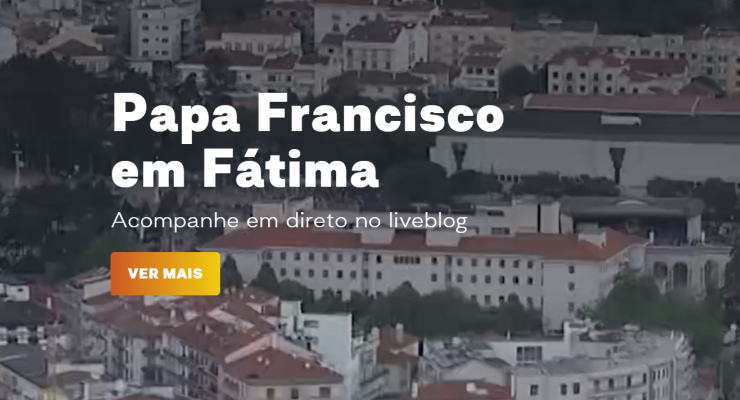
2023, August 3
Shrine’s Live Blog To Follow the Pope's Visit to Fatima
Address here
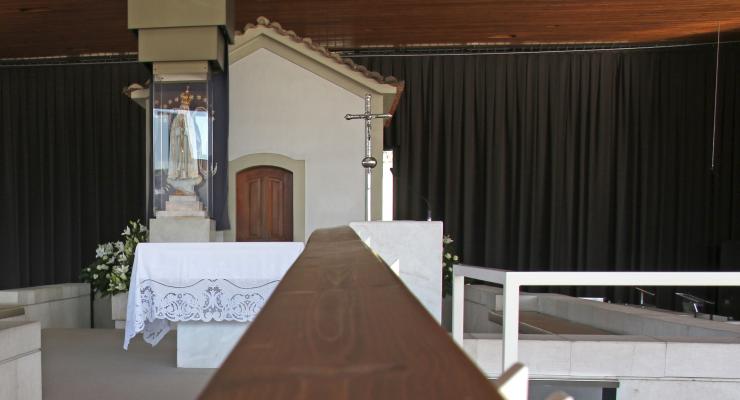
Little Chapel of the Apparitions Refurbished for the Pope's Visit
Adaptations are temporary but can be used again in the future.
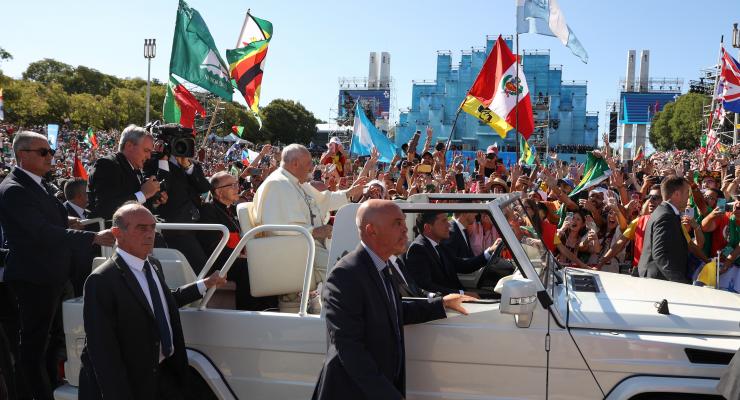
Magisterium of Pope Francis is Inspiration to Overcome Difficulties, Says Mgr. Manuel Clemente
Cardinal Patriarch welcomed the Holy Father to “our common home”.
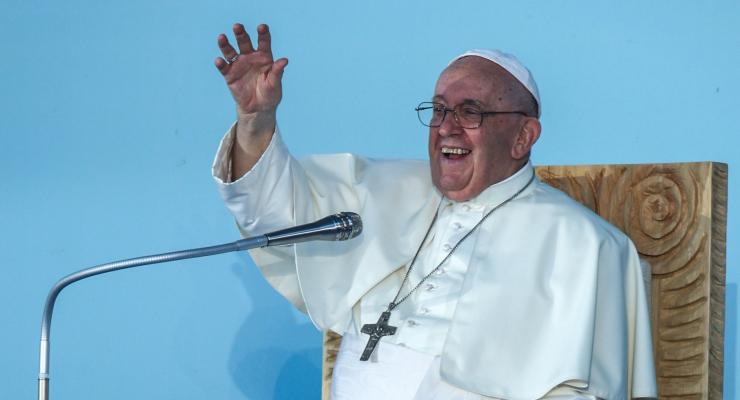
On the Hill of Encounter, Pope Francis Urges Young People to Be Courageous
The Holy Father reaffirms that in the Church there is a place for everyone, without exception.
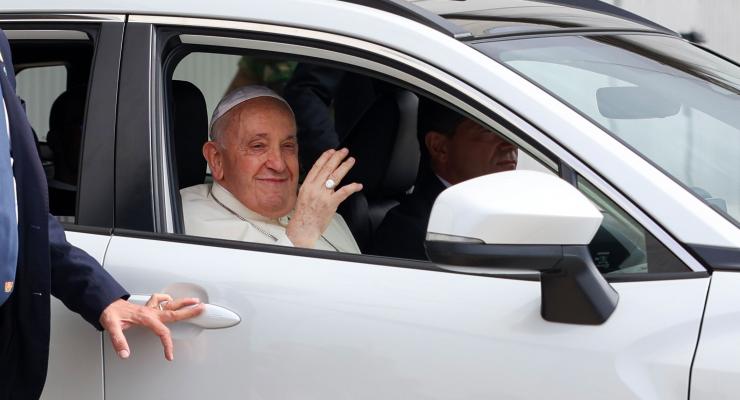
2023, August 2
Young People with Disabilities and Young Prisoners To Pray The Rosary With the Pope in Fatima
In the Little Chapel of the Apparitions, 112 young people and 128 attendants will be present.
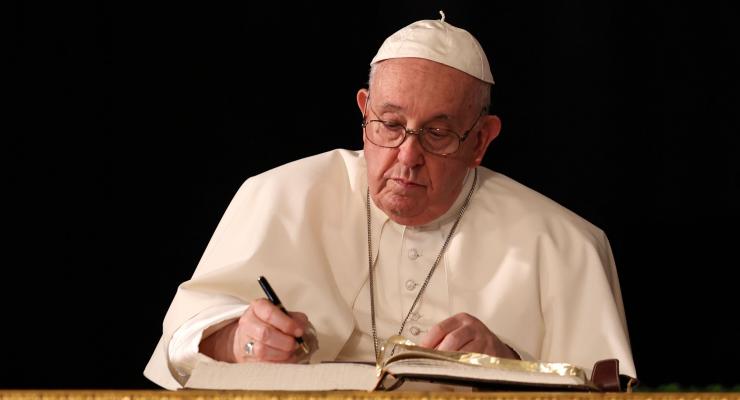
Pope Presents Himself as “Pilgrim of Hope” in Portugal
Six years ago, in Fatima, the Supreme Pontiff presented himself as a pilgrim of light, hope and peace
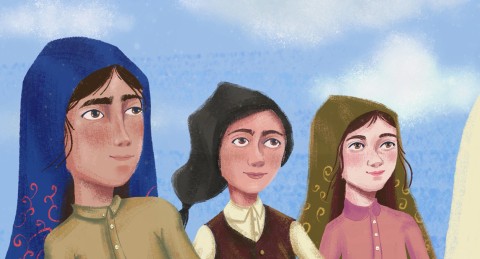
2023, July 25
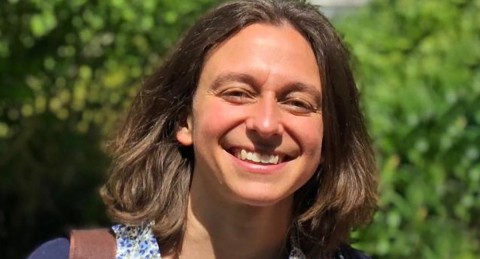
2023, June 14
The “haste of the heavenly messenger and the radicalism of the little shepherds” give Fatima a great coherence with WYD, says Sister Maria Rita Ornelas
Sister of the Congregation of the Handmaids of Our Lady of Fatima joins the Local Organising Committee of the World Youth Day, and is the guest of the #fatimanoseculoXXI May podcast
Where to stay, meals and reservations.
On Pilgrimage
Pilgrimage routes, pilgrim itineraries and workshops
Get to know the message of Fatima and the spaces of the Shrine of Fatima
Celebrations calendar and schedules
Santuário de Fátima Privacy Policy
Pope Francis adds Fátima visit to World Youth Day trip
The Vatican announced Pope Francis will travel to Portugal August 2-6 to participate in World Youth Day, and will visit the Shrine of Our Lady of Fátima August 5.
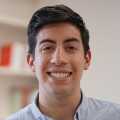
Pope Francis uses incense as he venerates a statue of Our Lady of Fatima during the canonization Mass of Sts. Francisco and Jacinta Marto, two of the three Fatima seers, at the Shrine of Our Lady of Fatima in Portugal, May 13, 2017. The Vatican announced the pope will return to Fatima Aug. 5 while in Portugal for World Youth Day. (CNS photo/Paul Haring)
VATICAN CITY (CNS) -- Pope Francis will visit the Shrine of Our Lady of Fátima during his trip to Portugal for World Youth Day 2023, the Vatican said.
In a statement May 22, Matteo Bruni, director of the Holy See Press Office, confirmed that the pope will travel to Lisbon Aug. 2-6 and will visit the Shrine of Our Lady of Fátima Aug. 5.
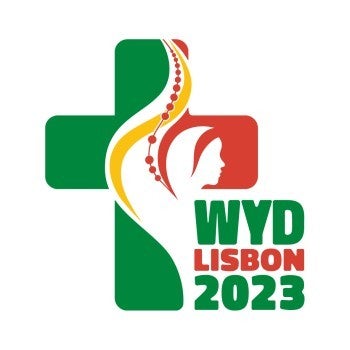
The Marian shrine at Fátima is connected to Pope Francis' public prayer appeals for an end the war in Ukraine. In March 2022, just over one month after Russia launched its full-scale invasion of Ukraine, the pope consecrated both countries to Mary's immaculate heart, praying before a statue of Our Lady of Fátima in St. Peter's Basilica. Before her death, Sister Lúcia dos Santos, one of the three Portuguese children who claimed to see apparitions of Our Lady of Fátima in 1917, had said Mary requested that Russia be consecrated to her immaculate heart by a reigning pope to bring peace to the world.
Previous popes had consecrated Russia to Mary's immaculate heart in various forms but had never mentioned the country by name as Pope Francis did in 2022.
In 2017, Pope Francis celebrated Mass at the shrine to mark 100 years since the apparitions of Our Lady of Fátima as part of a quick trip to Portugal that lasted just over 24 hours. He canonized Francisco Marto and Jacinta Marto, the cousins of Sister dos Santos, who also saw Mary at Fátima. Francisco in 1919 at the age of 10, while Jacinta succumbed to her illness in 1920 at the age of 9. Sister dos Santos died in 2005 at the age of 97.
CATHOLIC NEWS SERVICE
With its Rome bureau founded in 1950, Catholic News Service has been providing complete, in-depth coverage of the popes and the Vatican for more than 70 years. CNS Rome continues to be your fair, faithful and informed connection to the Holy See.
Featured Stories
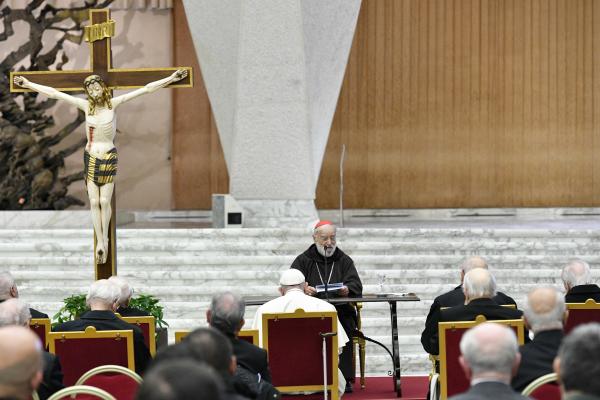
Discernment is essential to discipleship, papal preacher says
Cardinal Cantalamessa, who has served as preacher of the papal household since 1980, preaches to the pope and other Vatican officials on the Fridays of Advent and Lent.
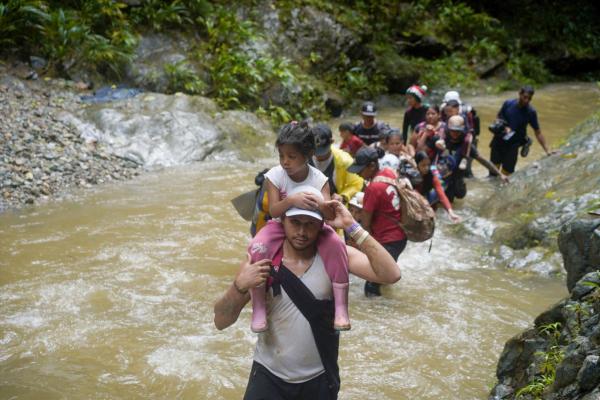
Pastoral Care of Migrants
Pope urges the church to see the face of christ in migrants.
Pope Francis sent a letter to migrants gathered near the Darién Gap in Panama to meet with bishops from Colombia, Costa Rica and Panama.
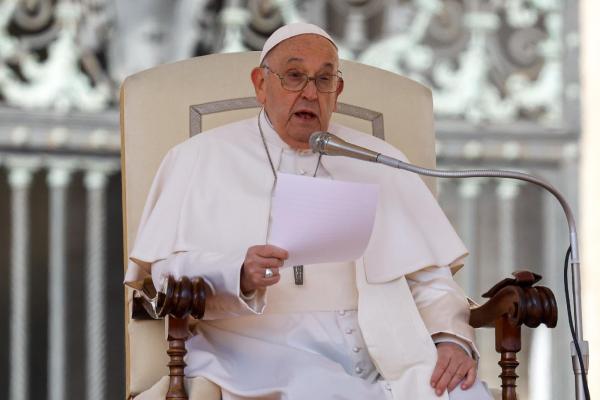
Pope Francis
At audience, pope looks at virtue of prudence, prays for peace.
After suffering from cold symptoms, Pope Francis said he's still having difficulty reading his speeches, but he took the microphone at the end of his general audience to...

Shrine’s Live Blog To Follow the Pope's Visit to Fatima
Address here

Little Chapel of the Apparitions Refurbished for the Pope's Visit
Adaptations are temporary but can be used again in the future.

On the Hill of Encounter, Pope Francis Urges Young People to Be Courageous
The Holy Father reaffirms that in the Church there is a place for everyone, without exception.
Retiro de Doentes
Aniversário do nascimento da irmã lúcia, fátima na luz da páscoa. viver o tríduo pascal com a mensagem de fátima, rosary, in the chapel of the apparitions, mass, in portuguese, in the chapel of the apparitions, visit our online store, santuário de fátima privacy policy, content subject to licensing, donation shrine of fatima, select amount.
Do you require a receipt?
You can't read? Generate new code here
Check your email
We have sent a verification code to (be sure to check your SPAM mail folder).
Payment via MBWAY
Please, complete the payment on your app MBWAY (this operation may take a few minutes to be available).
Payment via ATM card (debit card)
The receipt issued by the machine serves as proof of payment. Keep it.
- PARTICIPATE
Official Schedule for Pope's Visit
Official schedule for the apostolic journey of his holiness pope francis to portugal on the occasion of the world youth day lisbon 2023, 2 - 6 august 2023.

Subscribe to our newsletter and stay up to date with the latest news.
- Privacy Policy for Events
- Privacy Policy for Interviews
- Frequently Asked Questions (FAQ)
- Press releases
- Conditions of use
- Privacy policy
- Cookies policy
Pope Francis' Programme for Apostolic Journey to Portugal and World Youth Day 2023
By Francesca Merlo
The Holy See Press Office on Tuesday, 6 June, released Pope Francis' schedule for the 2023 World Youth Day, to take place from 1 to 6 August 2023 in Lisbon, Portugal.
Over 400,000 young people have registered to take part in the event on 1-6 August 2023.
In a video message released earlier this month, the Holy Father said that the desire of these young people to travel to the Portuguese capital later this year fills him with joy.
Pope Francis has presided over four World Youth Days, having previously done so in Rio de Janeiro, Brazil, in 2013; Krakow, Poland, in 2016; and Panama City, Panama, in 2019.
World Youth Day in Lisbon will be the 37th, and was originally scheduled to take place in the Portuguese capital in 2022, but was postponed due to the Covid-19 pandemic.
For this year's WYD's motto, Pope Francis has chosen a passage from Luke's Gospel: "Mary arose and went with haste" (Lk 1:39), which opens the account of the Visitation, when Mary visits her cousin Elizabeth following the angel’s announcement to the Blessed Mother that she would be the mother of the Son of God.
Pope's itinerary
Wednesday 2 August: arrival in Portugal
The Pope will depart at 7.50 am on Wednesday 2 August from Rome's Fiumicino airport and arrive at 10 am at the Figo Maduro air base in Lisbon. Immediately afterwards, he will be greeted at the National Palace in Belèm by the President of the Republic Marcelo Rebelo de Sousa. Also in the Belèm district, in the cultural centre, he will meet the authorities, civil society and the diplomatic corps. At 4.45 p.m. in the Apostolic Nunciature, he will meet with the Prime Minister and at 5.30 p.m., in the famous Monastery dos Jerònimos, he will celebrate Vespers with bishops, priests, deacons, consecrated men and women, seminarians and pastoral workers.
Thursday 3 August: welcoming ceremony for the WYD
On Thursday morning, Pope Francis will meet the students on the premises of the Universidade Catòlica Portuguesa. Then he will leave Lisbon for nearby Cascais, where he will greet the young people of Scholas Occurentes who have their headquarters there. In the afternoon he will return to the Portuguese capital for the welcoming ceremony of WYD, which will take place at the Edward VII Park.
Friday 4 August: Way of the Cross with young people
Some young people from WYD will receive the Sacrament of Reconciliation from the Pope in the "so Impèrio" square in Belèm on the morning of Friday 4 August. At around 9.45 am, Francis himself will go to the "de Serafina" parish centre to meet with representatives of some assistance and charity centres. At 12 noon there will be lunch with young people in the Apostolic Nunciature, while at 6 pm the Pontiff will preside over the Stations of the Cross with young people in Edward VII Park.
Saturday 5 August: visit to Fatima and WYD vigil
The Shrine of Our Lady of Fatima will be visited by the Pope on the morning of Saturday 5 August. Francis will leave Lisbon by helicopter for the Fatima Stadium at 8.00 am and at 9.30 am will pray the Holy Rosary with the sick young people at the Chapel of Apparitions. Around noon, he is scheduled to return to the capital. Two appointments are scheduled: at 6 pm the usual private meeting with members of the Society of Jesus at the Colégio de S. João de Brito and at 8.45 pm, as mentioned, the vigil with young people will take place in Tejo Park.
Sunday 6 August: Holy Mass and the return to the Vatican
The concluding Mass for World Youth Day will be celebrated by the Pope again in Tejo Park on Sunday 6 August at 9 a.m. In the afternoon there will be a meeting with the WYD volunteers at the 'passeio marìtimo' in Algès, before the farewell ceremony at the Figo Maduro airbase.
The Pope's return flight to Rome will leave at 6.15 p.m. and arrive at Fiumicino airport at 10.15 p.m.
Thank you for reading our article. You can keep up-to-date by subscribing to our daily newsletter. Just click here

More upcoming events:
The Pope's Agenda

Listen to our podcasts

Subscribe to our newsletters
To get the latest news

Papal audiences

Daily readings

Saint of the day

Vatican confirms Pope Francis trip to Lisbon and Fatima for World Youth Day

ROME (AP) — Pope Francis will travel to Portugal for World Youth Day in the first week of August and include a stop at the popular Marian shrine in Fatima, the Vatican said Monday.
The Aug. 2-6 visit is longer than originally expected and covers almost the entire week of the big Catholic rally that St. John Paul II inaugurated to try to invigorate young people in their faith.
Francis is staying in Lisbon for the length of the visit but will make a day trip to Fatima on Aug. 5. Francis previously traveled there in 2017 to mark the 100th anniversary of one of the most unique events of the 20th-century Catholic Church: the visions of the Virgin Mary reported by three shepherd children and the “secrets” she told them.
Francis’ visit this time around comes as war is raging in Ukraine, providing a comparison to when the original visions were reported at a time when Europe was in the throes of World War I.
Portuguese Bishops Conference: “We hope that the presence of Pope Francis among us, and which includes a significant pilgrimage to the Fatima shrine, will provide a powerful sense of renewal and grace for the church in Portugal.”
The visit comes as the Portuguese Catholic Church is reckoning with its legacy of clergy sexual abuse . Earlier this year, an independent report found that more than 4,800 people may have been victims starting in 1950. Previously, senior Portuguese church officials had claimed only a handful of cases had occurred.
There was no word on whether Francis would meet with victims, as he has done on several occasions elsewhere.
The Portuguese Bishops Conference expressed “huge joy” at the Vatican announcement of Francis’ visit and said hundreds of thousands of young people from around the world are expected in Lisbon. The rally was originally scheduled for 2022 but was postponed a year because of the COVID-19 pandemic; the last international World Youth Day was held in 2019 in Panama.
“We hope that the presence of Pope Francis among us, and which includes a significant pilgrimage to the Fatima shrine, will provide a powerful sense of renewal and grace for the church in Portugal,” the Bishops’ Conference said in a statement.
Francis’ other travel this year is expected to include a quick trip to Marseille, France, on Sept. 23 to address a meeting of Mediterranean bishops. Also under study is a proposed visit to Mongolia starting in late August.
[Related: How World Youth Day is changing the church]

Articles by The Associated Press, The AP.
We don’t have comments turned on everywhere anymore. We have recently relaunched the commenting experience at America and are aiming for a more focused commenting experience with better moderation by opening comments on a select number of articles each day.
But we still want your feedback. You can join the conversation about this article with us in social media on Twitter or Facebook , or in one of our Facebook discussion groups for various topics.
Or send us feedback on this article with one of the options below:
We welcome and read all letters to the editor but, due to the volume received, cannot guarantee a response.
In order to be considered for publication, letters should be brief (around 200 words or less) and include the author’s name and geographic location. Letters may be edited for length and clarity.
We open comments only on select articles so that we can provide a focused and well-moderated discussion on interesting topics. If you think this article provides the opportunity for such a discussion, please let us know what you'd like to talk about, or what interesting question you think readers might want to respond to.
If we decide to open comments on this article, we will email you to let you know.
If you have a message for the author, we will do our best to pass it along. Note that if the article is from a wire service such as Catholic News Service, Religion News Service, or the Associated Press, we will not have direct contact information for the author. We cannot guarantee a response from any author.
We welcome any information that will help us improve the factual accuracy of this piece. Thank you.
Please consult our Contact Us page for other options to reach us.
Most popular

Your source for jobs, books, retreats, and much more.
The latest from america
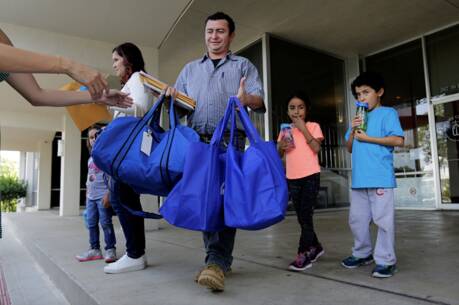
Pope to visit Portugal in August for World Youth Day, Fatima Shrine
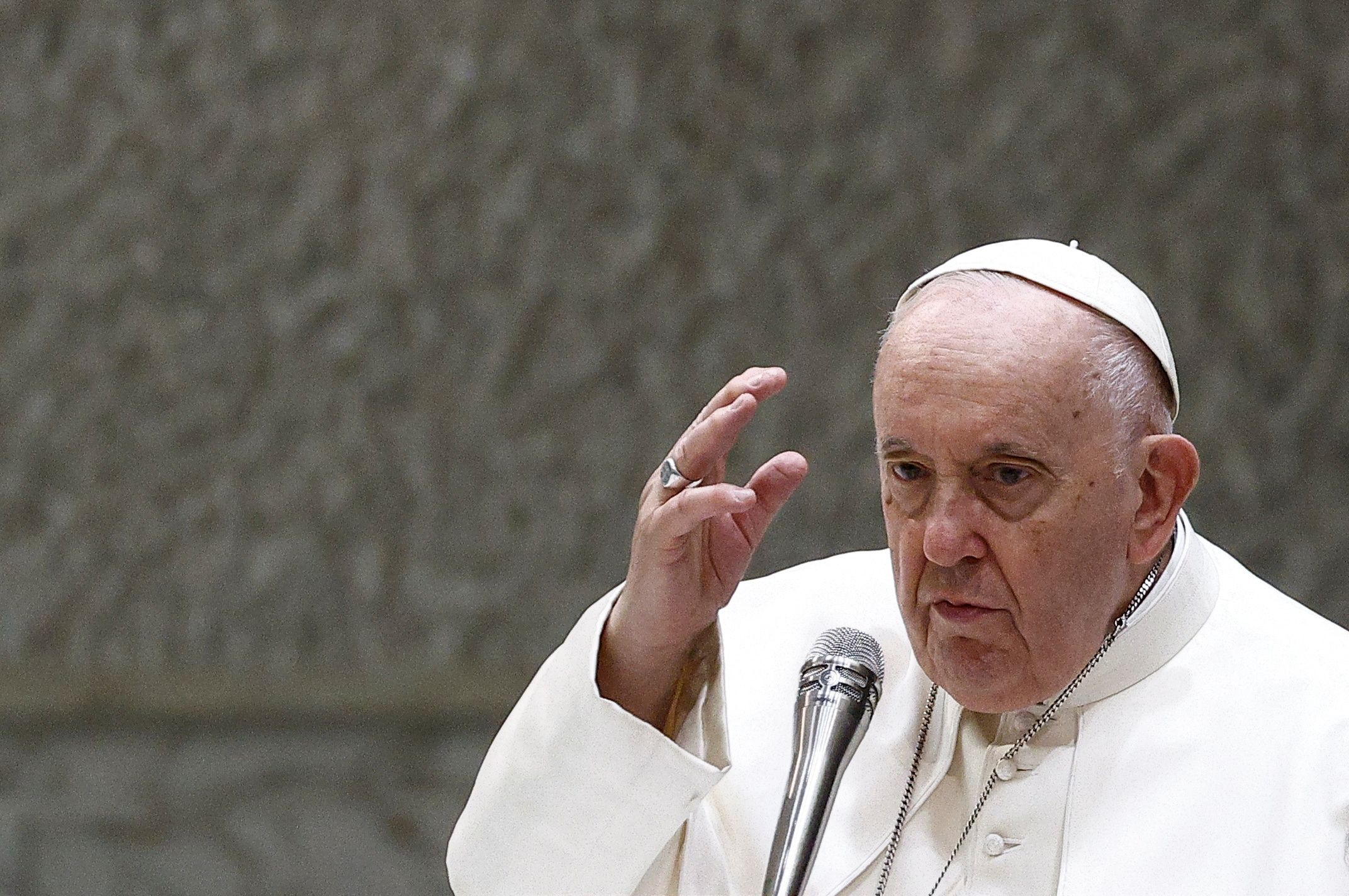
The Reuters Daily Briefing newsletter provides all the news you need to start your day. Sign up here.
Reporting by Crispian Balmer, editing by Ed Osmond
Our Standards: The Thomson Reuters Trust Principles. , opens new tab
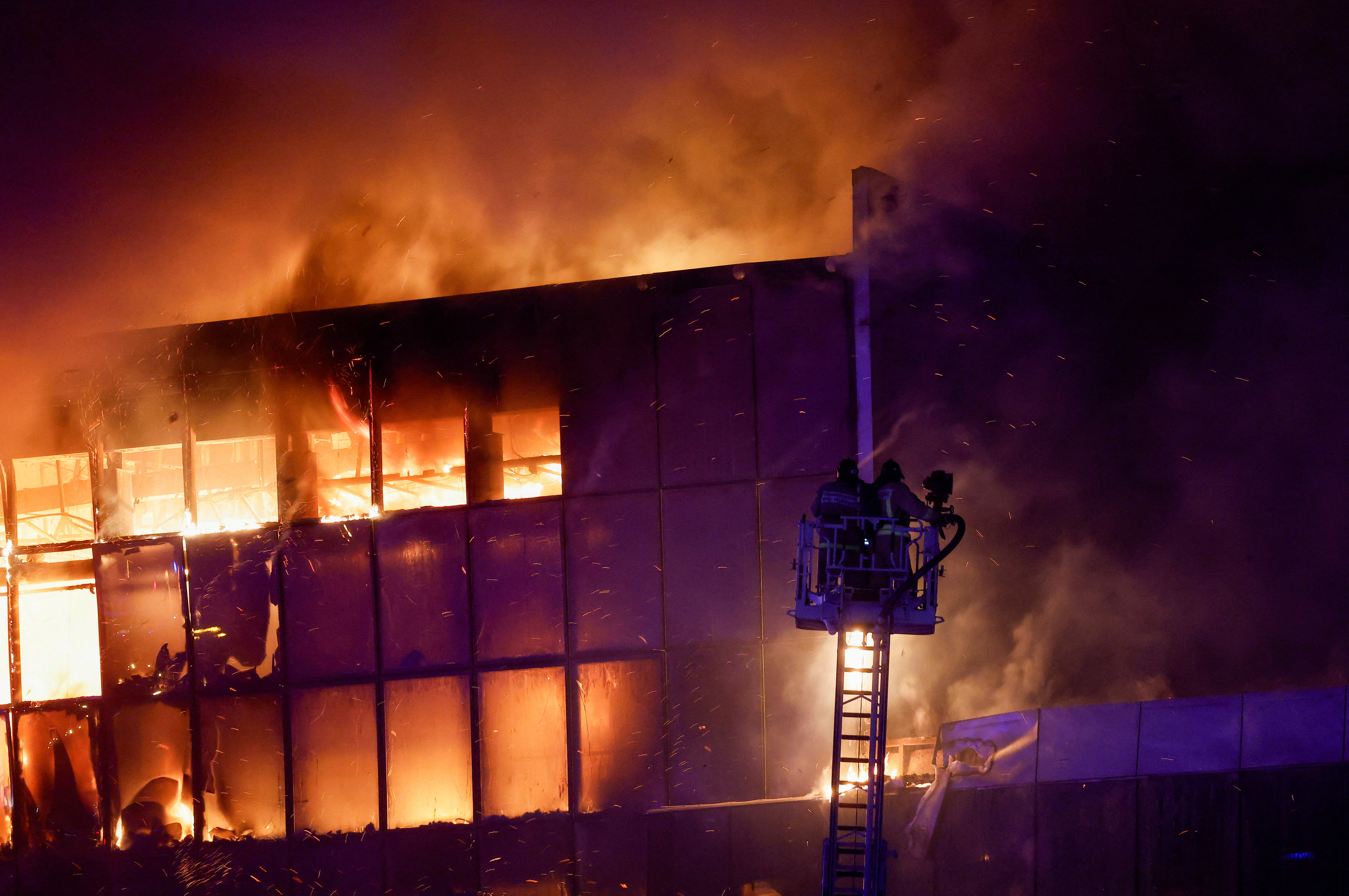
China coast takes steps against Philippine vessels in South China Sea
China's coast guard said it had taken control measures against Philippine vessels in disputed waters of the South China Sea on Saturday, while the Philippine coast guard decried the moves as "irresponsible and provocative".

- Print Edition
- Classifieds
Subscribe to our newsletter
Read today's Portuguese stories delivered to your email.
Pope planning 2023 Portugal visit
By TPN/Lusa, in News · 29 Apr 2021, 14:34 · 1 Comments
The confirmation was made during a private meeting between Cardinal António Marto and Pope Francis, held today at the Vatican. “Throughout our conversation, which lasted about 30 minutes, the Holy Father explained to me his desire to, on that occasion, also make a pilgrimage to Fatima” said António Marto. “It was a very cordial meeting, in which I expressed thanks to the Pope for his testimony of hope and encouragement in this difficult time that the world is going through” says D. António Marto.
The bishop of Leiria-Fátima adds that, during the hearing, both “exchanged impressions” about the pandemic in Portugal and “about the effects that it has had on the life of the Diocese and of the Sanctuary of Fátima”.
On 12 March, Pope Francis had already announced this intention to the President of the Republic, Marcelo Rebelo de Sousa, also announcing a visit to Fátima “It was, as it had been five years ago, an occasion to see how the Pope is attentive to everything. He spoke, of course, about going to Portugal in 2023, to Lisbon and Fátima during the World Youth Days”, said the head of state.
World Youth Day is the largest event organised by the Catholic Church. The announcement of the choice of Lisbon to host the Day was made on 27 January, 2019, in Panama City. Initially scheduled for August 2022, the Covid-19 pandemic caused WYD to be postponed for one year. Portugal will be the second Portuguese-speaking country, after Brazil, to host a World Youth Day, created in 1985 by Pope John Paul II (1920-2005).
Share this article: Share
More in News

Public employees given extra time off for Easter
In News , Portugal - 23 Mar 2024, 10:08
Algarve hoteliers want to build housing for workers
In News , Portugal , Tourism , Business - 23 Mar 2024, 09:05
World Happiness Report
In News , World - 23 Mar 2024, 07:30
Support The Portugal News
We are proud to provide our readers from around the world with independent, honest and unbiased news for free – both online and in print. Our dedicated team supports the local community, foreign residents and visitors of all nationalities through our newspaper, website, social media and our newsletter.
We appreciate that not everyone can afford to pay for our services but if you are able to, we ask you to support The Portugal News by making a contribution – no matter how small .
You can change how much you give or cancel your contributions at any time.
If he is still around... ...Might be off world by now.
By Carlos Sosa from USA on 29 Apr 2021, 14:43
Related articles

St. Callistus Caravario
In Curiosity - 17 Mar 2024, 10:01

Ramadan Kareem
In News - 11 Mar 2024, 08:31

St. Catherine de Ricci
In Curiosity , Lifestyle - 10 Mar 2024, 10:01

Catholic Mass in English
In Community , Other Events , Algarve - 07 Mar 2024, 17:31

St. Apollonia
In Curiosity - 03 Mar 2024, 10:01

World Day of Prayer Service
In Community , Lifestyle , Other Events , Algarve - 27 Feb 2024, 18:31

Fast Fashion
In Europe , World , Environment - 23 Mar 2024, 09:31
The scammers are coming
In Opinion - 23 Mar 2024, 09:30
Leo Varadkar Resigns
In Ireland - 23 Mar 2024, 09:02
Other News Articles

Portugal economic growth revised upwards
In News , Business , Portugal - 22 Mar 2024, 20:02

Lisbon job map to match supply with demand
In News , Portugal , Business , Lisbon - 22 Mar 2024, 19:05

Housing prices rise 8.2%
In News , Portugal , Property - 22 Mar 2024, 18:05

Estoril Open off the ATP circuit
In News , Portugal , Sport - 22 Mar 2024, 17:05

Clubs to Hire Partners with Engel & Völkers
In News , Business , Portugal , Sport , Property - 22 Mar 2024, 16:18

British minister wants to extradite Portuguese 'hacker' to USA
In News , Portugal , Crime , North America , United Kingdom - 22 Mar 2024, 16:10
Send us your comments or opinion on this article.
Available languages
Was there a miracle in Fatima during Pope’s visit?
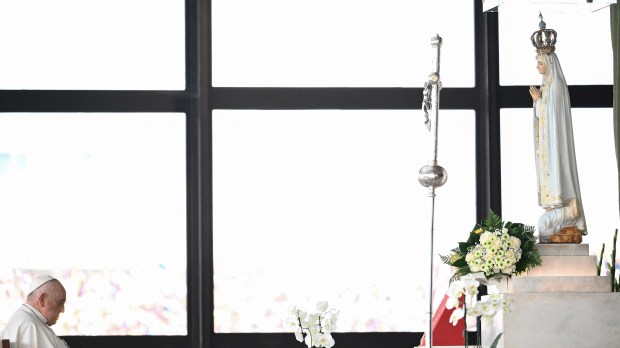
MARCO BERTORELLO | AFP
Donations made by March 27 will be matched! Give today and your gift will double. Support Aleteia's missionary work
Join our Lenten Campaign 2024.
“I opened my eyes and I could see perfectly,” says Jimena, a 16-year-old Spanish girl who reports that after receiving Communion in Fatima on the morning of August 5, the day of the Pope’s visit , she has been healed.
Jimena has lost most of her vision over the last two and a half years, she explained to the Spanish COPE radio station .
She had traveled to World Youth Day from Madrid with a group from Opus Dei. Her family and friends had organized a novena to ask Our Lady of the Snows for the gift of her healing. The last day was precisely the 5th of August, the feast day, but she says that she woke up that morning the same as the last many months, “with everything very blurry, seeing almost nothing.”
Anxious for relief from this suffering, and considering that it was the last day of the novena, the feast of Our Lady of the Snows, Jimena was in tears after Communion.
But then, she said, “I opened my eyes, and I could see perfectly.”
“I saw the altar, the tabernacle, my friends were there and I could see them perfectly.”
In fact, she could even read the prayer for the novena.
“The Virgin has given me a huge gift that I’ll never forget,” Jimena affirms.
Cardinal Juan José Omella, president of the Spanish bishops’ conference, spoke about the possible healing at a press conference concluding the WYD, saying he’d had a chance to speak with Jimena on a video call.
ACI Prensa reported that the cardinal referred to it as a “grace of God,” and noted how Jimena had been working to learn braille since her eye sight had failed her.
Jimena had told him of her prayer, and she was now able to read a prayer at Mass with a group from Madrid.
The cardinal reflected that later, doctors could evaluate the situation, but at the moment, for Jimena, this has been “an incredible event.”
“Let us say, a miracle. She didn’t see, and now she sees. Afterward, the doctors can speak to the rest, but she’s going back home able to see. Blessed be God.”
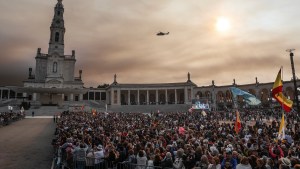
Enjoying your time on Aleteia?
Articles like these are sponsored free for every Catholic through the support of generous readers just like you.
Thanks to their partnership in our mission, we reach more than 20 million unique users per month!
Help us continue to bring the Gospel to people everywhere through uplifting and transformative Catholic news, stories, spirituality, and more.
Support Aleteia with a gift today!
- Moscow Tourism
- Moscow Vacation Rentals
- Moscow Photos
- All Moscow Hotels
- Moscow Hotel Deals
- Moscow Motels
- Moscow Campgrounds
- Moscow Hostels
- Moscow Business Hotels
- Moscow Spa Resorts
- Moscow Family Hotels
- Moscow Luxury Hotels
- Romantic Hotels in Moscow
- Moscow Green Hotels
- Moscow Ski-In / Ski-Out Hotels
- Moscow Resorts
- 5-stars Hotels in Moscow
- 4-stars Hotels in Moscow
- 3-stars Hotels in Moscow
- Novotel Hotels in Moscow
- Holiday Inns in Moscow
- Crowne Plaza Hotels in Moscow
- Rotana Hotels in Moscow
- Accor Hotels in Moscow
- InterContinental (IHG) Hotels in Moscow
- Radisson Hotels in Moscow
- Hilton Hotels in Moscow
- ibis Hotels in Moscow
- Radisson Blu Hotels in Moscow
- Hampton by Hilton Hotels in Moscow
- AZIMUT Hotels in Moscow
- Moscow Hotels with Pools
- Pet Friendly Hotels in Moscow
- Moscow Hotels with Free Parking
- 3rd Transport Ring (TTK) Hotels
- District Central (TsAO) Hotels
- Garden Ring Hotels
- Boulevard Ring Hotels
- Tverskoy Hotels
- Red Square & Kitay-gorod Hotels
- Zamoskvorechye Hotels
- Meshchanskiy Hotels
- Presnensky Hotels
- District Eastern (VAO) Hotels
- Cheap Accommodations in Moscow
- Boutique Hotels in Moscow
- Heritage Hotels in Moscow
- Hotels with Nightclubs in Moscow
- Moscow Downtown Hotels
- Moscow Hot Tub Suite Hotels
- Moscow Cheap Pet Friendly Hotels
- Moscow Hotels With Indoor Pools
- Moscow Hotels with Room Service
- Moscow Pet Friendly Campgrounds
- Things to Do
- Restaurants
- Vacation Rentals
- Travel Stories
- Rental Cars
- Add a Place
- Travel Forum
- Travelers' Choice
- Help Center
Are their the top five must visit metro stations...
- Europe
- Russia
- Central Russia
- Moscow
- Things to Do in Moscow
- Moscow Metro
Moscow Metro Questions & Answers
Browse nearby
Ask a question.
Get quick answers from Moscow Metro staff and past visitors.

Refuelling underway at Russia’s floating NPP
!{Model.Description}

The fresh fuel cassettes were delivered to Pevek by in special shipping containers along the Northern Sea Route in October by Rosatom’s fuel company TVEL and were immediately transferred aboard the FNPP. The manufacturer of nuclear fuel for all Russian nuclear icebreakers, as well as the Akademik Lomonosov, is the Mashinostroitelny Zavod (MSZ - part of TVEL) in Elektrostal, Moscow Region.
The loading of fresh fuel cassettes is being carried out into the reactor on the starboard side of the FNPP. Refuelling of the second reactor is planned for 2024. “When carrying out work to transship the nuclear fuel, all necessary measures were taken to meet radiation safety requirements,” said Alexey Fedotov, chief engineer at PATEC. “Before loading them into the reactor, each of the 121 fuel assemblies passed strict acceptance control. After a thorough check by specialists, all assemblies are sequentially placed in the reactor using automated crane equipment.” The reloading operation is planned to be completed before the end of this year. Maxim Shamambaev, the head of nuclear safety for the FNPP, said the radiation background in the region did not change during the work and remained at the natural background level for Pevek.
The installation of the FNPP in Chukotka aimed to solve two key problems. First it was to replace the retiring capacities of the Bilibino NPP, which began operating in1974, as well as the Chaunskaya thermal power plant, which is already more than 70 years old. Second, it was to supply energy to the main mining enterprises located in western Chukotka - a large ore and metal cluster, including gold mining companies and projects related to the development of the Baimskaya ore zone.
By the end of 2023, power generation to Pevek from the FNPP since it began operation in 2020 will total 200 GWh. The population of Pevek is just over 4,000. However, the plant can potentially provide electricity to a city with a population of up to 100,000.
Image courtesy of Rosatom
- Terms and conditions
- Privacy Policy
- Newsletter sign up
- Digital Edition
- Editorial Standards

700 episodes
Dr. Michael Savage earned his PhD in epidemiology and nutrition sciences from the Univ. of Cal. at Berkeley. Inducted into the National Radio Hall of Fame after over 26 years at the top of the talk radio format. Borders, Language and Culture are his pillars. A NY Times Best Selling author of over 30 books and novels, he was appointed by the President of the United States to the Board of the Presidio Trust. A true conservationist, Savage converses about politics, science, films, nutrition, cooking, cars and boats. News, views and reviews you can trust. To advertise on our podcast, please reach out to [email protected] or visit https://www.advertisecast.com/TheMichaelSavageShow
THE SAVAGE NATION Michael Savage
- 4.5 • 11K Ratings
- MAR 22, 2024

THE CIVIL WAR IS ALREADY HERE (now they're using the courts) with Stephen Gardner - #700
Savage and Stephen Gardner expose the Left in their plot to erode America's borders, language, and culture. Savage quotes Voltaire: "Those who can make you believe absurdities can make you commit atrocities." He shares examples of the Left's "absurdities" leading to "atrocities": defunding police, open borders, gender ideology, critical race theory, etc. They discuss how corporate greed and the Left are working to decimate our borders and bring down our civilization. Learn why Letitia James' prosecution of Trump is a political persecution. Savage explains why the Civil War is already here as the left is waging an insurgency to destroy America from within, without firing shots. Savage debunks the idea of "democratic socialism" and explains how Bernie Sanders played a role in shaping Biden's economic policies and federal budget. They discuss Trotskyism and the violent Bolshevik Revolution. It's time for people to wake people up to the underlying agenda and threats we face! https://www.youtube.com/@StephenGardner1 Learn more about your ad choices. Visit podcastchoices.com/adchoices
- MAR 21, 2024
THE LEFTIST PLOT TO REDEFINE THE CONSTITUTION - #699
This week, Supreme Court Justice Ketanji Brown Jackson suggested during oral arguments that the First Amendment should not be allowed to “hamstring” the government amid a crisis. For years, Savage has been warning against the threat radical DEI justices posed to our future freedoms. Listen to this remarkable broadcast from 2012 where Savage exposed the Left's efforts to redefine the U.S. Constitution. Learn the shocking claims the late leftist icon Ruth Bader Ginsburg made about the U.S. Constitution. Once again, Savage was ahead of the pack in his effort to sound the alarm on the progressive plot to unravel our republic! Learn more about your ad choices. Visit podcastchoices.com/adchoices
- MAR 19, 2024
BLOOD MONEY: WHY THE POWERFUL TURN A BLIND EYE WHILE CHINA KILLS AMERICANS with Peter Schweizer - #698
Investigative reporter and best-selling author Peter Schweizer shares the BOMBSHELL revelations he uncovered in his new book Blood Money: Why the Powerful Turn a Blind Eye While China Kills Americans. Savage and Schweizer dig into the shocking details, revealing the deep influence China wields on America today. Learn about China's strategy of "cognitive" and "disintegration" warfare and how it is being employed to fragment American society; Why American tech companies like Meta are pushing the sale of TikTok; China's alleged involvement in the production and distribution of fentanyl in the United States; The long-term strategy for China to get revenge on the West for the Opium Wars; How Hollywood studios have co-financing deals with Chinese propagandists; The increasing influence of Chinese financing on Hollywood films and streaming services like Netflix; How Chinese-funded groups are linked to the Party for Socialism and Liberation, Black Lives Matter, and other left-wing organizations; And which politicians are financially profiting from Chinese influence. Share this alarming podcast so others learn the truth! Learn more about your ad choices. Visit podcastchoices.com/adchoices
- MAR 15, 2024
The Diversity Con with Best-Selling Author Kent Heckenlively - #697
Savage and best-selling author Kent Heckenlively expose the systemic cancer of DEI (Diversity, Equity, and Inclusion) which has poisoned universities and communities worldwide. Savage shares his personal struggle for academic opportunities due to affirmative action during his time at the University of California, Berkeley. Heckenlively exposes how these policies have been pervasive in corporate America for decades and have now moved into universities, creating a dangerous divide among people. They argue that DEI policies aim to separate people and create hatred, preventing them from recognizing their similarities and uniting against the real oppressors in society. Heckenlively expresses optimism that transparency and open discussions about these issues can help turn the tide against DEI policies and restore the pursuit of excellence in society. They discuss the resignation of Harvard President Claudine Gay and the quick fall of phony leaders along with the consequences of their actions. They emphasize the necessity of open dialogue and engaging with opposing viewpoints. They warn about the dangers of DEI and the destructive ideology behind targeting certain groups.Learn how George Soros and others fund foundations and manipulate the media. https://surfshark.deals/SAVAGESHOW Learn more about your ad choices. Visit podcastchoices.com/adchoices
- MAR 14, 2024
SAVAGE: The Independent-Minded Individualist - #696
In this rare radio broadcast from 2007, Savage explains why he resonates with independents and the nonconformists of America. Politicians fear him and his audience who want to hear the truth instead of talking points. Then, he moves between a myriad of topics; Why dogs and animals understand a dimension that we do not; How sex and 'free love' is actually a tactic by the communist Left to destroy the family; How the media debases womanhood in modern America. Known for legendary callers, enjoy some classic calls on animals, politics, nutrition and more! Learn more about your ad choices. Visit podcastchoices.com/adchoices
- MAR 12, 2024
THE POPE GOT IT RIGHT ABOUT UKRAINE AND RUSSIA & THE OSCARS STINK - #695
Savage expresses surprise at Pope Francis' call for Ukraine to negotiate peace with Russia and wave the white flag of negotiations, despite his previous criticisms of the Pope's liberal views. The Pope's unexpected stance on the conflict, which has resulted in the deaths of hundreds of thousands of people and the decimation of Ukraine, has caused controversy. Ukrainian President Volodymyr Zelensky has rejected the idea of giving up any territory. Then, Savage discusses how the concept of Freud's penis envy theory drives today's politics and expresses his disinterest in engaging in political debates. He reflects on the mortality of all beings, emphasizing that we are all made of flesh and God made it that way. He also shares his thoughts on President Biden's anger during The State of the Union address. He then shifts to discussing plants, expressing his belief that they have feelings and emotions, and warning against the evaporation of plant cell walls, which he sees as a metaphor for the destruction of nations and cultures. He explores the concept of judgment after death and shares a conversation he had with a mystical rabbi. He expresses that God will not ask about what one wrote in their diaries but rather what they didn't write. He then shares his admiration for great writers like Ernest Hemingway and Henry Miller, who inspired him during difficult times. He reminisces about growing up on existentialist writers and meeting the widow of his hero, lamenting the loss of intellectual heroes and the current state of Hollywood. He questions the existence of heroes today and expresses his love for America and shares his belief in the power of tuning into God or a higher power to overcome external influences. He concludes with a true story about the head Rabbi in Moscow during the Bolshevik takeover in Russia and the importance of faith and the Rabbi's unwillingness to compromise his beliefs, even in the face of persecution. https://surfshark.deals/SAVAGESHOW Learn more about your ad choices. Visit podcastchoices.com/adchoices
- © 2024 Michael Savage
Customer Reviews
11K Ratings
Dr. Savage thanks for opening my eyes to the critical importance of ‘Borders, Language and Culture’. Without those we are nothing as a country
Miss the trains
From the Bronx and a huge fan since your earlier days on AM Radio late 2000.
Top Podcasts In News
You might also like.

Turn Your Curiosity Into Discovery
Latest facts.

10 Facts About Futures Trading That Every Investor Should Know

10 Facts about Americans in Spain
40 facts about elektrostal.
Written by Lanette Mayes
Modified & Updated: 02 Mar 2024
Reviewed by Jessica Corbett

Elektrostal is a vibrant city located in the Moscow Oblast region of Russia. With a rich history, stunning architecture, and a thriving community, Elektrostal is a city that has much to offer. Whether you are a history buff, nature enthusiast, or simply curious about different cultures, Elektrostal is sure to captivate you.
This article will provide you with 40 fascinating facts about Elektrostal, giving you a better understanding of why this city is worth exploring. From its origins as an industrial hub to its modern-day charm, we will delve into the various aspects that make Elektrostal a unique and must-visit destination.
So, join us as we uncover the hidden treasures of Elektrostal and discover what makes this city a true gem in the heart of Russia.
Key Takeaways:
- Elektrostal, known as the “Motor City of Russia,” is a vibrant and growing city with a rich industrial history, offering diverse cultural experiences and a strong commitment to environmental sustainability.
- With its convenient location near Moscow, Elektrostal provides a picturesque landscape, vibrant nightlife, and a range of recreational activities, making it an ideal destination for residents and visitors alike.
Known as the “Motor City of Russia.”
Elektrostal, a city located in the Moscow Oblast region of Russia, earned the nickname “Motor City” due to its significant involvement in the automotive industry.
Home to the Elektrostal Metallurgical Plant.
Elektrostal is renowned for its metallurgical plant, which has been producing high-quality steel and alloys since its establishment in 1916.
Boasts a rich industrial heritage.
Elektrostal has a long history of industrial development, contributing to the growth and progress of the region.
Founded in 1916.
The city of Elektrostal was founded in 1916 as a result of the construction of the Elektrostal Metallurgical Plant.
Located approximately 50 kilometers east of Moscow.
Elektrostal is situated in close proximity to the Russian capital, making it easily accessible for both residents and visitors.
Known for its vibrant cultural scene.
Elektrostal is home to several cultural institutions, including museums, theaters, and art galleries that showcase the city’s rich artistic heritage.
A popular destination for nature lovers.
Surrounded by picturesque landscapes and forests, Elektrostal offers ample opportunities for outdoor activities such as hiking, camping, and birdwatching.
Hosts the annual Elektrostal City Day celebrations.
Every year, Elektrostal organizes festive events and activities to celebrate its founding, bringing together residents and visitors in a spirit of unity and joy.
Has a population of approximately 160,000 people.
Elektrostal is home to a diverse and vibrant community of around 160,000 residents, contributing to its dynamic atmosphere.
Boasts excellent education facilities.
The city is known for its well-established educational institutions, providing quality education to students of all ages.
A center for scientific research and innovation.
Elektrostal serves as an important hub for scientific research, particularly in the fields of metallurgy, materials science, and engineering.
Surrounded by picturesque lakes.
The city is blessed with numerous beautiful lakes, offering scenic views and recreational opportunities for locals and visitors alike.
Well-connected transportation system.
Elektrostal benefits from an efficient transportation network, including highways, railways, and public transportation options, ensuring convenient travel within and beyond the city.
Famous for its traditional Russian cuisine.
Food enthusiasts can indulge in authentic Russian dishes at numerous restaurants and cafes scattered throughout Elektrostal.
Home to notable architectural landmarks.
Elektrostal boasts impressive architecture, including the Church of the Transfiguration of the Lord and the Elektrostal Palace of Culture.
Offers a wide range of recreational facilities.
Residents and visitors can enjoy various recreational activities, such as sports complexes, swimming pools, and fitness centers, enhancing the overall quality of life.
Provides a high standard of healthcare.
Elektrostal is equipped with modern medical facilities, ensuring residents have access to quality healthcare services.
Home to the Elektrostal History Museum.
The Elektrostal History Museum showcases the city’s fascinating past through exhibitions and displays.
A hub for sports enthusiasts.
Elektrostal is passionate about sports, with numerous stadiums, arenas, and sports clubs offering opportunities for athletes and spectators.
Celebrates diverse cultural festivals.
Throughout the year, Elektrostal hosts a variety of cultural festivals, celebrating different ethnicities, traditions, and art forms.
Electric power played a significant role in its early development.
Elektrostal owes its name and initial growth to the establishment of electric power stations and the utilization of electricity in the industrial sector.
Boasts a thriving economy.
The city’s strong industrial base, coupled with its strategic location near Moscow, has contributed to Elektrostal’s prosperous economic status.
Houses the Elektrostal Drama Theater.
The Elektrostal Drama Theater is a cultural centerpiece, attracting theater enthusiasts from far and wide.
Popular destination for winter sports.
Elektrostal’s proximity to ski resorts and winter sport facilities makes it a favorite destination for skiing, snowboarding, and other winter activities.
Promotes environmental sustainability.
Elektrostal prioritizes environmental protection and sustainability, implementing initiatives to reduce pollution and preserve natural resources.
Home to renowned educational institutions.
Elektrostal is known for its prestigious schools and universities, offering a wide range of academic programs to students.
Committed to cultural preservation.
The city values its cultural heritage and takes active steps to preserve and promote traditional customs, crafts, and arts.
Hosts an annual International Film Festival.
The Elektrostal International Film Festival attracts filmmakers and cinema enthusiasts from around the world, showcasing a diverse range of films.
Encourages entrepreneurship and innovation.
Elektrostal supports aspiring entrepreneurs and fosters a culture of innovation, providing opportunities for startups and business development.
Offers a range of housing options.
Elektrostal provides diverse housing options, including apartments, houses, and residential complexes, catering to different lifestyles and budgets.
Home to notable sports teams.
Elektrostal is proud of its sports legacy, with several successful sports teams competing at regional and national levels.
Boasts a vibrant nightlife scene.
Residents and visitors can enjoy a lively nightlife in Elektrostal, with numerous bars, clubs, and entertainment venues.
Promotes cultural exchange and international relations.
Elektrostal actively engages in international partnerships, cultural exchanges, and diplomatic collaborations to foster global connections.
Surrounded by beautiful nature reserves.
Nearby nature reserves, such as the Barybino Forest and Luchinskoye Lake, offer opportunities for nature enthusiasts to explore and appreciate the region’s biodiversity.
Commemorates historical events.
The city pays tribute to significant historical events through memorials, monuments, and exhibitions, ensuring the preservation of collective memory.
Promotes sports and youth development.
Elektrostal invests in sports infrastructure and programs to encourage youth participation, health, and physical fitness.
Hosts annual cultural and artistic festivals.
Throughout the year, Elektrostal celebrates its cultural diversity through festivals dedicated to music, dance, art, and theater.
Provides a picturesque landscape for photography enthusiasts.
The city’s scenic beauty, architectural landmarks, and natural surroundings make it a paradise for photographers.
Connects to Moscow via a direct train line.
The convenient train connection between Elektrostal and Moscow makes commuting between the two cities effortless.
A city with a bright future.
Elektrostal continues to grow and develop, aiming to become a model city in terms of infrastructure, sustainability, and quality of life for its residents.
In conclusion, Elektrostal is a fascinating city with a rich history and a vibrant present. From its origins as a center of steel production to its modern-day status as a hub for education and industry, Elektrostal has plenty to offer both residents and visitors. With its beautiful parks, cultural attractions, and proximity to Moscow, there is no shortage of things to see and do in this dynamic city. Whether you’re interested in exploring its historical landmarks, enjoying outdoor activities, or immersing yourself in the local culture, Elektrostal has something for everyone. So, next time you find yourself in the Moscow region, don’t miss the opportunity to discover the hidden gems of Elektrostal.
Q: What is the population of Elektrostal?
A: As of the latest data, the population of Elektrostal is approximately XXXX.
Q: How far is Elektrostal from Moscow?
A: Elektrostal is located approximately XX kilometers away from Moscow.
Q: Are there any famous landmarks in Elektrostal?
A: Yes, Elektrostal is home to several notable landmarks, including XXXX and XXXX.
Q: What industries are prominent in Elektrostal?
A: Elektrostal is known for its steel production industry and is also a center for engineering and manufacturing.
Q: Are there any universities or educational institutions in Elektrostal?
A: Yes, Elektrostal is home to XXXX University and several other educational institutions.
Q: What are some popular outdoor activities in Elektrostal?
A: Elektrostal offers several outdoor activities, such as hiking, cycling, and picnicking in its beautiful parks.
Q: Is Elektrostal well-connected in terms of transportation?
A: Yes, Elektrostal has good transportation links, including trains and buses, making it easily accessible from nearby cities.
Q: Are there any annual events or festivals in Elektrostal?
A: Yes, Elektrostal hosts various events and festivals throughout the year, including XXXX and XXXX.
Was this page helpful?
Our commitment to delivering trustworthy and engaging content is at the heart of what we do. Each fact on our site is contributed by real users like you, bringing a wealth of diverse insights and information. To ensure the highest standards of accuracy and reliability, our dedicated editors meticulously review each submission. This process guarantees that the facts we share are not only fascinating but also credible. Trust in our commitment to quality and authenticity as you explore and learn with us.
Share this Fact:
- Home
- / Our doctrine
- / Principles of National Restoration
- / Holy Russia
- / Vladimir Soloviev, prophet of Russia's conversion
VLADIMIR SOLOVIEV prophet of Russia’s conversion
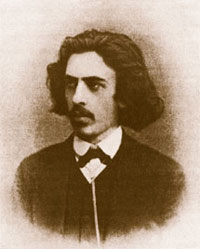
T HE conversion of Russia will not be the work of man, no matter how gifted he may be, but that of the Immaculate Heart of the Virgin Mary, the Mediatrix of all graces, because this is God’s wish, which he revealed to the world in 1917. The life and works of Vladimir Soloviev are a perfect illustration of this truth of Fatima. He whom our Father regards as « the greatest Russian genius of the 19th century », was in his own way a prophet of the “ conversion ” of his beloved Country, announcing the necessity of her returning to the bosom of the Roman Church. « Rome or chaos », such was his catchphrase, Rome whose anagram is not a matter of chance, but a providential sign, a definition: ROMA , AMOR . Led by this incomparable guide, we would like « to anticipate in our thoughts, our hearts and our prayers this consecration, this long-awaited conversion, which must mark the beginning of a time of sacred peace throughout the world, the beginning of the universal reign of the Most Blessed and Immaculate Heart of Mary, and through Her, of God’s Kingdom » (English CRC, December 1982, p. 23).
A PERSONAL CONVERSION
Through the example of his life, Soloviev recalls the indispensable means of this immense work: self-renunciation, personal and collective sacrifice, in Russian the podwig , the only way in which the Church, nations, saints and heroes can become the instruments of God’s designs. If he managed to surpass his master Dostoyevsky by his « truly universal Catholicism and far superior mystical vision », this was not without without a conversion of mind and heart on his part.
Our Father summarises the principal stages of his life as follows: « Born of an honourable Muscovite family, of part Kievian ancestry, Vladimir Soloviev began, in a world where only Germany counted, by being a victim of all the poisons of the West. He himself relates how he was a zealous materialist at the age of thirteen, had read Renan’s Life of Jesus at fifteen, and had become an evolutionist and therefore (!) an atheist and a nihilist at eighteen, in « It was Spinoza and then Schopenhauer who pulled him out of this bottomless void. Whereupon in 1872 a mysterious encounter with “ Wisdom ” suddenly shook him out of the scientific naturalism in which he had been vegetating and made him aware, as he says, of invisible Beauty, the “ Sophia tou théou ”, the daughter of God. He thus became the fervent witness of Wisdom’s indwelling in the world and of Her desire for total incarnation and universal queenship. His quest for wisdom, scientific, aesthetic and mystical, had commenced. He was nineteen years old. The quest would never end for this new style Russian pilgrim ; it would be of an unparalleled fruitfulness despite its touching brevity. He died of exhaustion in 1900, at the age ! » (English CRC, December 1982, p. 35)
We will limit ourselves in this article to his prophetic insights on the Union of the Churches. In his Lessons on Theandry (1878) – he was then twenty-five ! – our philosopher applies himself to contemplating the Wisdom of God at work in history, perfectly incarnated in Jesus and His virginal Mother, as well as in the Church as she awaits her eschatological transfiguration. The most serious sin, throughout this history, has been that of schism. Who is responsible for this vast Vladimir Soloviev began by throwing all responsibility for it on the Catholic Church, so much so that he provided the inspiration for Dostoyevsky’s famous “ myth of the Grand Inquisitor ” in The Brothers Karamazov . But, at the beginning of the 1880’s, through studying the question more closely, he understood that the sin of schism was in fact that of the East. This was a stroke of genius on his part for which our Father commends him greatly:
« I must beg pardon of my master Msgr. Jean Rupp, of Solzhenitsyn, Volkoff and so many others, but it seems obvious to to me, as it did to Soloviev in the end, that the schism of Moscow in setting itself up as the third Rome was the beginning of all the ills suffered by these admirable Christian peoples of European Russia . And I must say so because this rupture still weighs heavily on the world of today and because it is precisely of this rupture that Our Lady of Fatima speaks when She foretells “ the conversion of Russia ”. (English CRC, December 1982, p. 24)
Let us follow Soloviev in his commendable mystical conversion which has opened up a path of light for his people, allowing a spring of grace and mercy to gush forth.
AN EVANGELICAL DISCOURSE
In 1881, Soloviev published a long article, still very antipapist, entitled Spiritual power in Russia . There the pope was presented as Antichrist institutionalised ! Our theorist placed all his hope in the regenerative mission of Holy Russia and in the Tsar who was to be her « divine figure, religious guide and animating wisdom ». But were the Russian people still capable of accomplishing such One particular event was to shake Soloviev’s patriotic faith. On March 1, 1881, Alexander II was assassinated by revolutionaries. A few days later, Soloviev gave a Discourse in which he recommended that his successor, Alexander III, show mercy to the regicides. Certainly not as a matter of weakness or abdication before the Revolution, even less out of the spirit of non-violence that a certain Tolstoy was already preaching, but « as an example of Russian piety », that famous podwig « which lies at the heart of the Russian people’s evangelical soul, of which the tsar is the living icon ». Alas, Soloviev was not understood... This was a painful stage in his life, the first step he had taken beyond his master Dostoyevsky.
The following year, he published another article entitled “ Schism in the Russian people and society ”. Delving deep into the past, he accused Metropolitan Nikon of having broken, at the time of Peter the Great, the communion, the Sobornost , so beloved of the Russian people, by excommunicating Raskol, the fierce guardian of traditional popular religion... Ever since then, the Orthodox hierarchy, enslaved to the imperial power, had proved powerless to govern and sanctify Orthodoxy. It was nothing now but a shrunken, secularized “ local Church ” which, if it were to be restored and revived, would need to open itself up to “ the universal Church ”.
In the spring of 1882, Soloviev was powerfully affected by an unusual dream. In his dream he met a high-ranking Catholic ecclesiastic and entreated him to give him his blessing. The priest refused, so Soloviev insisted, declaring, « The separation of the Churches is the most disastrous thing possible. » Finally, the ecclesiastic agreed to give him his blessing.
This premonitory dream was to awaken in Vladimir Soloviev a burning desire for reconciliation with Catholicism, and to stimulate him to write a series of articles to be published every month in his friend Aksakov’s slavophile newspaper Rouss and then to be collected together in a work with the resonant title: The Great Controversy and Christian Politics . One particular maxim constantly reappeared under the Russian writer’s pen:
« FIRST AND FOREMOST WE MUST WORK TO RESTORE THE UNITY OF THE CHURCH, AND TO MAKE THE FIRE OF LOVE BURN IN THE HEART OF CHRIST’S SPOUSE . »
By an irony of fate, the term “ Controversy ”, which for Soloviev referred to the conflict between Rome and the East, was going to give place to a bitter controversy between himself and his Orthodox and slavophile friends.
A MARVELLOUS AND ADORABLE WISDOM
T HE world’s beauty appeared to Soloviev as a living figure, a real existence, changing and yet immortal. He saw her and held her as the queen of his spiritual universe under her venerable name of Sancta Sophia . At the end of his life, in 1898, he celebrated the Three Encounters he had had with this Beauty which for him was Wisdom.
“ Three times in his life he had been overwhelmed by the radiant visit of Wisdom who appeared to him in the form of an absolutely heavenly female being, dazzling him and enlightening him profoundly. Not without reason certain authors think that all his religious and even philosophical works derive from this illumination. ”
And let us immediately point out, in order to acclimatize the Western reader who is highly likely to be disconcerted by these accounts, that trustworthy interpreters of Soloviev have attributed a marian character to these visions. For them, the whole of the Philosopher’s work derives from the AVE MARIA GRATIA PLENA . “ It is a marvellous perspective ”, adds Msgr. Rupp. “ Wisdom is closely allied to the Immaculate who is its seat. ” ( Le message ecclésial de Soloviev , p. 340)...
What I am going to say next will perhaps surprise my reader. Nothing is more biblical than this vision, and I am astonished at the astonishment of theologians and their impatient criticisms. This Sophia was already well known, hymned and even boldly adored by the scribes of the Old Testament under this very name of Wisdom. Far from being “ pantheist ”, this idea, this vision touches the essence of created beings, and is clearly poles apart from the Platonic idea and far more profound than Aristotle’s substance; it lies at the very heart of being, there where nothing exists except relationship to God, the term of a will and a wisdom that are infinite, there where exists a pure reflection, a fragment of the image of God’s beauty.
George de Nantes , A mysticism for our time , French CRC no. 133, p. 7.
THE GREAT CONTROVERSY
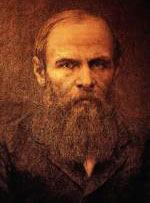
In January 1883, he fired the opening shots with an open letter to Aksakov: « As I reflected on the means of curing this interior disease (of Christianity), I became convinced that the origin of all these evils lies in the general weakening of the earthly organisation of the visible Church, following her division into two disunited parts. » He demonstrated that, in order to establish herself on earth and to endure throughout history, the Christian religion had need of a higher authority, and he explained that it was therefore essential to restore « the union of all Christian and ecclesiastical forces under the standard and under the power of one central ecclesiastical authority ».
On February 19, Soloviev gave a talk in homage to his master Dostoyevsky. It was almost a panegyric of the Roman Church ! He declared his ardent hope for the reconciliation of the two Churches, for the two parts of the universal Church which should never have been separated and whose centre lay in... Rome . As a result of this speech, he saw himself banned from speaking in public. The newspapers made no mention of his speech. For the first time, and it would not be the last, Soloviev was the victim of the censure of Constantin Petrowitch Pobiedonostev, Russia’s Grand Inquisitor and the Tsar’s adviser on religious matters. Pobiedonostev championed a sacral conception of political power, akin to that of the French legitimists of the time, but he was fiercely Orthodox, and any opening towards the Catholic religion was pitilessly censured.
Soloviev responded to this censure with a smile. So his speech had been described as « infantile chattering » ? « If we are not converted », he said to his friends, « and become like little children again, we will not enter the Kingdom of Heaven. » He went on: « When I was a pretentious little boy [teaching German philosophy: Kant, Hegel, Fichte, Schopenhauer and Nietzsche], people listened with great respect to my “ truly infantile ” prattling. And now it is fitting that the only way I can attain the perfection of humility is by everyone ! »
At the same time, he wrote to Aksakov: « It is necessary to defend Catholicism against the false accusations being brought against it... Consequently, in advocating a reconciliation with Catholicism, I assume that Catholicism is not in principle erroneous, for one cannot be reconciled with error . » Now there we have a true ecumenism ! The life of Soloviev, writes our Father, « was ».
To the charge of “ papism ” levelled against him, Soloviev responded in March 1883 with an admirable profession of faith, already Catholic:
« It seems to to me that you concentrate only on “ papism ” whereas I focus first and foremost on the great, holy and eternal Rome, a fundamental and integral part of the universal Church. I believe in this Rome, I bow before it, I love it with all my heart, and with all the strength of my soul I desire its rehabilitation for the unity and integrality of the universal Church. And may I be accursed as a parricide should I ever utter one word of condemnation against the Holy Church of Rome . »
THE REALISATION OF THE DREAM
In May 1883, on the occasion of the coronation of the Emperor Alexander III, the Moscow press complained that too many concessions were being made to restore diplomatic relations with the Vatican broken in 1866, but Soloviev protested: such an agreement was necessary, were it only to improve relations with the Catholics of Poland. The Pope was represented at the ceremony by his special envoy Msgr. Vincenzo Vanutelli. Had not Alexander III written to Leo XIII shortly beforehand: « Never has unity between all Churches and all States been so necessary, in order to realise the wish expressed by Your Holiness of seeing the peoples abandoning the disastrous errors responsible for the social malaise and returning to the holy laws of the Gospel... »
A few days after the ceremony, Soloviev was crossing Moscow in a hired car. Suddenly, he recognized the route he had followed in his dream the previous year. Soon he came to a stop in front of a house from which a Catholic prelate was just leaving: it was Msgr. Vanutelli in person... There was the same hesitation of this latter to give his blessing to a schismatic, and the same entreaties of Soloviev, who finally !
In the summer of 1883, our author wrote two articles on The Catholic Question . According to Soloviev, it was for Russia to take the first step towards the Catholic Church. Imagine !
His articles were not of the sort to leave his readers indifferent. On the Orthodox side, there was an increasing irritation, while on the Catholic side, surprise soon gave way to enthusiasm. The news crossed the borders, spreading to Poland and even to Croatia, where Msgr. Strossmayer was finally seeing his desires realised. The jurisdiction of his diocese of Djakovo extended into Bosnia and Serbia, that is into Orthodox territory. Endowed with a superior intelligence and animated by great apostolic zeal, this Croatian bishop keenly felt the need for a true, intelligent and benevolent ecumenism. He wrote in 1883 to one of his friends, Father Martynov:
« In my opinion, the principal task of the Catholic Church and of the Holy See this century is to draw as closely as possible to the Slav nation, principally the Russian nation . By winning it over to the divine unity of the Catholic Church, we would at the same time win over everyone in the world who still possess a positive faith. »
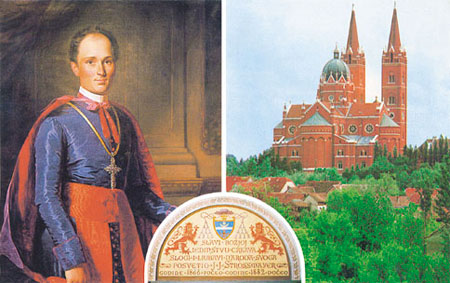
IN THE RADIANCE OF THE IMMACULATE
In the summer of 1883, Soloviev wrote five long letters to a Russian Uniate priest on the subject of The Immaculate Conception of the Most Blessed Virgin Mary . At the same time he translated Petrarch’s “ Praise and prayer to the Most Blessed Virgin ”, wherein he contemplated Her “ clothed in the Sun, crowned with stars... Her glance radiating infinity ! ” It is highly significant that Soloviev was simultaneously attracted by the mystery of the Catholic Church and the mystery of the Immaculate Virgin. The dogma of the Immaculate Conception was the first Catholic dogma which he embraced, and his favourite painting was the Immaculate Conception by Murillo.
In The Foundations of the Spiritual Life (1884), he exalted the « All Holy and Immaculate » Virgin Mary. In Russia and the Church Universal (1889), he would praise Pope Pius IX for having quoted, in support of his dogmatic definition, the Old Testament texts referring to Wisdom, the “ Sophia ” of his personal intuitions:
« If, by the substantial Wisdom of God, we were exclusively meant to understand the Person of Jesus Christ, how could we apply to the Blessed Virgin all those texts in the Wisdom books which speak of this Wisdom ? However, this application, which has existed from the very earliest times in the offices of both the Latin and Greek Churches, has today received doctrinal confirmation in the bull of Pius IX on the Immaculate Conception of the Most Blessed Virgin. » (quoted by Msgr. Rupp, Le message ecclésial de Soloviev, p. 338)
In September 1883, when the sixth chapter of The Great Controversy was published, a rumour spread through Moscow that Soloviev had “ passed over ” to Catholicism, but there was no truth in it. Moreover, curious though this may seem to us, he was not looking “ to pass over to Catholicism ”, but only to open Orthodoxy up to the universality of the Roman Church.
His seventh and final chapter aroused a lively debate, one that is ever topical. The question turned on the attitude of the Byzantine Greeks in conflict with the Crusaders of the West. Soloviev wrote: « On the day that Constantinople fell, seeing the Turkish armies poised to attack, the final spontaneously expressed cry of the Greeks was, “ Better Islamic slavery than any agreement with the Latins. ” I do not mention this as a reproach to the unfortunate Greeks. If, in this cry of implacable hatred, there was nothing Christian, then neither has there been anything especially Christian in all the formal and artificial attempts to reunite the Churches… »
Aksakov, his Orthodox pride deeply irritated by this remark, retorted: « What does he mean, nothing Christian ? May the Greeks be blessed a hundred times over for having preferred a foreign yoke and bodily torture to the abandonment of the purity of their faith in Christ and for having thus preserved us from the distortions of papism at the precise moment [ the beginning of the 13th century ! ] when it had reached the height of its deformity. May they win eternal glory for this ! »
Nonetheless, Soloviev continued his search for truth, surmounting every obstacle. His article “ Nine Questions to Father Ivantsov-Platonov ” published in December 1883, created a deep stir even in the West. Here he put nine questions to his former master in Orthodoxy on those points of controversy which set the Church of the East against the Church of Rome. Here is the setting:
« How is it that the countries of the East are separated from the Roman Church ? Did the latter proclaim an heretical proposition ? One would be hard pushed to maintain this, for the addition of the Filioque to the Creed, which is put forward to justify the separation, does not have the character of a heresy. Furthermore, it is absurd to say that the Roman Church is in a state of schism with regard to the Eastern Churches. Thus, the latter’s separation from the former has no basis. Let us acknowledge this and, putting aside all human viewpoints, let us work towards Unity or rather let us work so that Unity, which already has a virtual existence, may become a reality. »
THE THREAD OF AN ANCIENT TRADITION
During 1884, the Russian philosopher studied Catholic dogmatics. He read the works of Perrone, the theologian of Gregory XVI and Pius IX, as well as the texts of the Councils. He was particularly interested in Popes Gregory VII and Innocent III, whom he read in the original text.
At the same time he had a great enthusiasm for the Croatian priest George Krijanich who « had come from Zagreb to Moscow in the 17th century to spread the ideal of the Holy Kingdom of God, Roman Catholic and panslavic, gathering together under the sceptre of the tsars and the crook of the Pope all the Slav peoples who would thereby be freed and protected from the twofold burden pressing them on both sides like a vice, the Germanic powers and the Turks. Thus the Croats would work to free themselves from Austrian control and at the same time they would assist the Serbs, their Orthodox brothers, to shake off Moslem domination.
« To realise this grand design, capable at one blow of powerfully advancing the Kingdom of God on earth, Krijanich came to Moscow and preached on the subject of Russia’s reconciliation with Rome . This should not be difficult, he said, because the Russians had only fallen into schism through ignorance and not through heresy or malice. He himself was already preaching that everyone should recognise their own individual faults, be they unconscious or involuntary, and the need for expiation. God’s blessings would follow as a result, immense and eternal blessings. Sergius Mikhailovich Soloviev, our great man’s father, a historian and the author of a monumental history of Russia, admired Krijanich as “ the first of the Slavophiles ” and also, in his eyes, “ the most paradoxical ”, so alien did Catholicism then appear to the Russian consciousness. » (English CRC, December 1982, p. 32)
Soloviev intended to prove the contrary. And it was just at this time that he entered into friendly relations with the Croatian Bishop Strossmayer, thereby resuming the thread of an ancient tradition, one which was apparently marginal but which in reality was pregnant with a splendid future. Early in December 1885, Soloviev for the first time received a letter from the Croatian bishop. He replied to him on December 8, “ the blessed Day of the Immaculate Conception of the Most Blessed Virgin ”:
« On the reunion of the Churches », he wrote, « depends the fate of Russia, the Slavs and the whole world. We Russian Orthodox, and indeed the whole of the East, are incapable of achieving anything before we have expiated the ecclesiastical sin of schism and rendered papal authority its due . » And he ended with these words: « My heart burns with joy at the thought that I have a guide like you. May God long preserve your precious leadership for the good of the Church and the Slav people. » In his pastoral letter of January 1886, the bishop of Djakovo quoted large extracts from this letter.
Encouraged by such support, in 1886 Soloviev undertook a study on Dogmatic development and the question of the reunion of the Churches , which provoked the fury of Orthodoxy. However, at a conference given at the ecclesiastical Academy of Saint Petersburg, Soloviev attempted to justify himself: « I can assure you that I will never pass over to Latinism. » He thereby sought to register his attachment to the Eastern rite. No question for him of adopting the Latin rite ! After that, he set out on a journey to Europe.
FIRST STAY IN ZAGREB (1886)
At the beginning of July, he was the guest of the honourable Canon Racki, President of the Yugoslav Academy of Zagreb, founded by Msgr. Strossmayer, and a personal friend of the latter. Every morning the Orthodox Soloviev assisted at the Catholic Mass with great enthusiasm. He made the sign of the cross in the Catholic manner, but prayed in the Greek manner, crossing his arms on his chest. He willingly admitted to his host – and this was not due to any desire to please on his part – that Croatian Catholics, like the Ukrainians, were more religious than his Orthodox compatriots !
Following an article published in the Croatian journal Katolicki List , Soloviev for the first time encountered opposition from a Catholic priest.
During his stay in Zagreb, he also published a letter in the Russian newspaper Novoie Vremia , wherein he refuted the widespread opinion in Russia that the Croats were the instruments of the Austro-Hungarian government’s attempt to Latinize the Eastern Slavs.
In August, he joined Msgr. Strossmayer in the Styrian Alps, and spent ten marvellous days with him. These two minds were truly made to get along. The mutual admiration they felt for one another reinforced their spiritual friendship. But Soloviev continued to receive Holy Communion at the hands of the Orthodox priest of the Serb parish of Zagreb... Rising above the inevitable criticisms, he then wrote a letter to Msgr. Strossmayer, summarising their initial conversations:
« The reunion of the Churches would be advantageous to both sides . Rome would gain a devout people enthusiastic for the religious idea, she would gain a faithful and powerful defender. Russia for her part, she who through the will of God holds in her hands the destinies of the East, would not only rid herself of the involuntary sin of schism but, what is more, she would thereby become free to fulfil her great universal mission of uniting around herself all the Slav nations and of founding a new and truly Christian civilisation, a civilisation uniting the characteristics of the one truth and of religious liberty in the supreme principle of charity, encompassing everything in its unity and distributing to everyone the plenitude of the one unique good. »
Such was his transcription of the well known Catholic principle: « In necessariis unitas, in dubiis libertas, in omnibus caritas : unity in essentials, liberty in matters of doubt, and in all things charity . Such must be the Charter of Catholic ecumenism under the crook of the one Shepherd. From the start of this crisis, such has been the invitation we have made to our bishops and to our brothers. Today, it is also the will of the Holy Father », wrote our Father in his editorial for September 1978, dedicated to John Paul I, another Saint Pius X without knowing it (English CRC no. 102, p. 6).
When he informed his friends of Soloviev’s letter, Msgr. Strossmayer presented its author as « a candid and truly holy soul ».
Msgr. Strossmayer and Soloviev had agreed to meet again in Rome for the jubilee pilgrimage of 1888. The Croatian bishop decided to pave the way in Rome by writing to Leo XIII’s Secretary of State, Cardinal Rampolla. He presented his Russian friend as « toto corde et animo catholicus ». The Pope at first took a personal interest in the affair: « Here is a sheep », he said, « who will soon be clearing the gate of the sheepfold. » But curiously, there was to be no follow-up. It seems that Leo XIII failed to appreciate Soloviev’s genius... However, things were different in France, where an unassuming and ardent rural parish priest latched on to everything that his apostolic zeal could extract from the lightning advances made by the Russian thinker ( see inset , p. 19).
Soloviev returned to Russia at the beginning of October 1886, rather discouraged by the criticisms directed against him on all sides: there were the Orthodox, some of whom had accused him of bringing Orthodoxy into disrepute abroad... and certain Catholics, like Fr. Guettée in France, a modernist priest with little to commend him, whom he had met in Paris in 1876 and who had recently published an article of rare violence against him !
THE “ RETURN OF THE DISSIDENTS ”
June 18, 1887: a young Capuchin, Leopold Mandic, from Herzeg Novi in Bosnia, under the jurisdiction of Msgr. Strossmayer, and studying at the friary in Padua, heard the voice of God inviting him to pray for and promote the return of the Orthodox to the bosom of the one Church of Christ. « The goal of my life , he would later say, must be the return of the Eastern dissidents to Catholic unity; I must therefore employ all my energies, as far as my littleness allows, to co-operate in such a task through the sacrifice of my life . » Fifty years later, he would still remember this grace: « June 18, for the record: 1887-1937. Today, I offered the Holy Sacrifice for the Eastern dissidents, for their return to Catholic unity . » Thus the Heart of Jesus and the Immaculate united, in this one same “ ecumenical ” work, the ardent heart of a young Capuchin destined for the altars, the apostolic wisdom of a bishop and the brilliant intuitions of a great thinker.
In January 1887, from the Monastery of Saint Sergius where he had celebrated Christmas, Soloviev wrote an article in which he provided philosophic justification for the three Catholic dogmas which the Orthodox reject, namely the Filioque, the Immaculate Conception and papal infallibility . Here is a « basis for working towards the reunion of the Churches », he explained. A few months later, he published in Zagreb (on account of the censure directed against him in Russia) his book The History and Future of Theocracy .
There he retraced the vast movement of history towards the establishment of the Kingdom of God. Universal Theocracy, the successor of Jewish Theocracy, cannot be conceived, he explained, without an integrally Christian politics, and he concluded with a splendid anthem to Christ Pantocrator receiving from His Father all power on earth and in Heaven and acting through His emissaries, the Apostles and their successors. Soloviev always believed in the privileged vocation of Russia within the Catholic community of Christian nations, even if he stigmatized what he called “ the sin of Russia ”, which was to oppress and hate all those it dominated, in particular Polish Catholics, Greek Uniates, Ruthenians and Jews !
Like a true prophet, he was vigorous in preaching repentance to his people . In order that they might be faithful to their vocation within the great Slav family, Soloviev asked them to give up their inordinate ambitions, to return to a truer and more Christian conception of their destiny, and to accomplish this within the only international organization which could direct its course, Catholicism, that is to say Roman universalism.
« One of my theses is that the cause of the Reunion of the Churches in Russia demands a podwig (sacrifice) even heavier to bear than that which, already demanding great self-denial, was needed to ensure Russia’s receptivity to Western culture, an event truly disagreeable to the national sentiment of our ancestors .
« Well ! this sacrifice consists in drawing closer to Rome and it must be attained at all costs. In this lies the remedy for the Russian sin . »
It goes without saying that Soloviev earned himself new enemies with his book. It cost him great personal suffering, but he could not fail the Truth, which he contemplated with ever greater clarity... What greatness of soul this universal genius possessed !
SAINT VLADIMIR AND THE CHRISTIAN STATE
1888 marked the ninth centenary of the baptism of Saint Vladimir, the first prince of Kiev, whose kingdom after his conversion became « the model of Christian States, with evangelical morals », writes our Father (English CRC, December 1982, p. 23). Soloviev used the occasion to give a conference in Moscow, where he reaffirmed that Russia’s destiny was to turn towards Rome, as King Vladimir had ! However, having hardened itself in its schism, the Muscovite hierarchy was no longer animated by the spirit of St. Vladimir. Hence the fury of the Orthodox hierarchs !
At the same time, Msgr. Strossmayer had gone to Rome for the Jubilee. In vain did he wait for Soloviev there. The latter, fearing perhaps that he had made a definitive break with the Orthodox world which he dreamed on the contrary of winning for the Union, had given up the idea of making this journey. It must also be said that Vatican diplomacy hardly inspired more confidence in him. Leo XIII was revealing himself less and less slavophile, reserving his favours for the Germany of old Bismarck and the young William II ! Msgr. Strossmayer lamented this in a letter to Fr. Martynov: « The Pope is acting against the Slavs. The Roman prelates are like people insane and think only of temporal power ! »
What a difference between Leo XIII and his successor, St. Pius X, who was, in the words of Msgr. Rupp and our Father, the greatest slavophile pope of our times !
Early in May 1888, Soloviev was on a visit to Paris. To explain his thinking to the French public, he gave a conference on the Russian Idea , « the true national idea eternally fixed in the design of God », who longs to spread His light over the whole world. However, Soloviev remained lucid about his own Church: « If the unity of the universal Church founded by Christ only exists among us in a latent state, it is because the official institution represented by our ecclesiastical government and our theological school is not a living part of the universal Church. »
In passing, he described the destruction of the Greek-Uniate Church by the Orthodox as a « veritable national sin weighing on Russia and paralysing her moral strength ». That is still the case today...
In July, Kiev celebrated the feast of the baptism of St. Vladimir. From Zagreb Msgr. Strossmayer sent a telegram in which he exalted Russia’s future role in the manner of his friend Soloviev. Scandal ! His remarks were universally reported by the press. Cardinal Rampolla informed the Croatian bishop that Leo XIII was seriously displeased ! The bishop of Djakovo also earned himself the bitter reproaches of Emperor Francis Joseph of Austria, which is more understandable given the rivalry existing between the two Empires.
In the summer of 1887, Soloviev published in the Universe , the newspaper of Louis Veuillot, three articles on St. Vladimir and the Christian State which caused a great stir. Then he journeyed to Croatia where he remained for one whole month with Msgr. Strossmayer. This meeting was rather sad, for the two friends were increasingly aware that their attempt to reunite the Churches would not succeed, at least in their lifetime.
It was in Djakovo that Soloviev finished the immense prologue to his magisterial book, Russia and the Church Universal , in which one can already glimpse signs of the discouragement that would overwhelm the thinker in the latter part of his life. We know from Fatima that the work of the conversion of Russia, something humanly impossible, has been entrusted to the Immaculate Heart of Mary who has a particular love for this Nation such as to inspire jealousy in others. But this only makes it all the more extraordinary that our prophet should have traced out the course of this conversion, like a true Precursor !
« RUSSIA AND THE CHURCH UNIVERSAL »
Soloviev does not hesitate to delve deep, extremely deep, into the past. To realise its designs in the world, divine Wisdom wished to become incarnate, and the Verb to take flesh like our own. As that was not enough, He also wished to unite to Himself a social and historical body, one that could reach the universality of mankind and communicate to all men His own divine Life. In this magnificent perspective, Soloviev compares the formation of that Body through which God wishes to be united with humanity to that effected in the womb of the Virgin Mary at the time of the Incarnation, and to that which operates every day in the Eucharistic mystery... What was needed for this work was a solid foundation, a Rock:
« This bedrock has been found », he writes, « it is Rome. It is only on the Rock [of Peter and his successors] that the Church is founded. This is not an opinion, it is an imposing historical reality . »
It is also an evangelical truth: « You are Peter, and on this Rock I will build my Church . » Here Soloviev addresses the Protestants who seek to outbid each other in their attacks against the Primacy of Peter by quoting Jesus’ own words to His Apostle when he was obstructing the Master’s path: « Get behind me, Satan ! » Soloviev’s response once again shows the clarity of his intelligence and his perfect knowledge of Catholic dogma:
« There is only one way of harmonising these texts which the inspired Evangelist did not juxtapose without reason. Simon Peter, as supreme pastor and doctor of the universal Church , assisted by God and speaking for all, is, in this capacity, the unshakeable foundation of the House of God and the holder of the keys of the heavenly Kingdom. The same Simon Peter, as a private person, speaking and acting through his own natural forces and an understanding that is purely human , can say and do things that are unworthy, scandalous and even satanic. But personal defects and sins are passing, whereas the social function of the ecclesiastical monarch is permanent. “ Satan ” and the scandal have disappeared, but Peter has remained. »
Soloviev’s doctrine agrees with that of Vatican Council I and with that of our Father who, at the same time as he makes us venerate Peter’s magisterium, magnificently illustrated by Blessed Pius IX, St. Pius X and John Paul I, accuses John XXIII, Paul VI and John Paul II of being instruments of “ Satan ” for the ruin of the Church.
However, Christ wished that it should be around Peter that the unity of faith and charity should be formed: « Since the unity of the faith does not presently exist in the totality of believers, seeing that not all of them are unanimous in matters of religion, it must lie in the legal authority of a single head, an authority assured by divine assistance and the trust of all the faithful . This is the ROCK on which Christ founded His Church and against which the gates of hell will never prevail. »
Why did this ROCK settle in Rome, and not in Jerusalem, Constantinople or Moscow ? Here we have a further brilliant response from Soloviev: historically Rome represented the order, civilization and terrestrial Empire that would best allow the Church to become the universal spiritual Empire desired by Christ. In a mystical view of the history of Salvation – we would say divine “ orthodromy ” – Soloviev shows how God, wishing to extend salvation to the whole world, decided one day that His Kingdom should leave Israel for Rome, so that the capital of the pagan Empire should become “ the conjoint instrument ” of His designs:
« The universal monarchy was to stay put; the centre of unity was not to move. But central power itself, its character, its source and its sanction were to be renewed... Instead of an Empire of Might, there was to be a Church of Love. » One thinks of Constantine’s conversion and his imposition throughout the Roman Empire of laws favouring Christianity, and of Theodosius declaring the Christian religion the religion of State. What decisive support for the Gospel ! The remarkable Roman civilization, already the heir of Greece, was put at the service of the Cross of Christ !
Soloviev had some wonderful expressions to describe this, as for example the following: « Jesus unthroned Caesar... By unthroning the false and impious absolutism of the pagan Caesars, Jesus confirmed and immortalised the universal monarchy of Rome and gave it its true theocratic foundation . »
« Let us not think », comments our Father, « that our theosophist loses his way in a contemplation of evangelical love and freedom. Fully aware of the frailty and shortcomings of humanity, he declares that it is essential, for its effective salvation, that supreme divine power be joined to the firmest social structure, to the virile principle , and not as formerly to the female principle of a virginal flesh for the Incarnation. This firm principle is the imperial monarchical institution which is Rome and Caesar. Converted, elevated and unabolished, the Power of Rome continues in the Pope for the service of the universal community.
« It is only this divino-human pontifical paternity that is capable of forming the basis of the universal fraternity of the peoples, not only through its spiritual influence but also through its authority and its supranational organization. In this monarchy, sacred but popular, the Pope, the Universal Emperor, clearly remains the servant of the servants of God and is, for that very reason, the sovereign Head of the Nations. Opposed to any kind of papolatry, antagonistic to all the encroachments of papism, and quite capable of denouncing such a Pope as Satan, Soloviev raised an imperishable monument to the glory of Rome and pointed out – him, a member of the Orthodox Church – the path of the world’s salvation, which lay in one place only, in the universal Christian order of a restored Roman Catholic Church ... » (French CRC no. 131, July 1978, p. 6)
In his lifetime, Soloviev ran up against a wall of hostility and incomprehension: « I am not so naive », he said, « to seek to convince minds whose private interests are greater than their desire for religious truth. In presenting the general evidence for the permanent primacy of Peter as the basis of the universal Church, I have simply wanted to assist those who are opposed to this truth, not because of their interests and passions, but merely because of their unwitting errors and hereditary prejudices. »
The final period of his life might seem to some like a decline and a renunciation of his prophetic insights, but our Father writes: « Soloviev was too great a mind to be discouraged or to modify his ideas in accordance with the fluctuations of his worldly success. What is certainly true is that his bitter experiences gave him a better knowledge of the Evil that was at work in the world, throwing up formidable obstacles to God’s designs and going so far as to erect a kind of caricature of them. This he denounced as the power of the Antichrist, the Prince of this world, announced in the Scriptures. » (French CRC no. 132, August 1978, p. 12)
At the beginning of the 1890’s, relations between Soloviev and the Orthodox Church deteriorated. « Given the papaphobia reigning among us , he wrote to a friend, sometimes revealing its underhand character and at other times its stupidity, and always in any event unchristian, I considered and I continue to consider that it is necessary to draw people’s attention to the Rock of the Church laid by Christ Himself and to its positive significance . »
As he persisted in his criticisms, even going so far as to compare the Greco-Russian Church with « the Synagogue », the Orthodox hierarchy, in the person of Pobiedonostev, the Holy Synod’s prosecutor, employed the ultimate weapon at its disposal: it deprived him of the sacraments. One day in 1894, being seriously ill, Soloviev asked to receive the sacraments. His Orthodox confessor refused to give him absolution unless he renounced his Catholic views. Soloviev refused to yield, preferring to forego confession and Holy Communion.
AN AUTHENTIC CONVERSION
The moment had come. On February 18, 1896, he went to see Fr. Nicholas Alexeyevich Tolstoy, a Catholic priest of the Eastern rite exercising his ministry in Moscow. This priest, a former officer, owed him his vocation, his formation (Soloviev having been his teacher) and his conversion to Catholicism. That February 18 was the feast day of Pope St. Leo so dear to Soloviev. Before Mass, he read on his knees the Tridentine symbol of the faith containing the Filioque and a formula declaring that the Church of Rome must be regarded as the head of all the particular Churches. Then he received the Body of Christ at the hands of the Catholic priest.
On the following day, Fr. Tolstoy was denounced and arrested. He managed to escape and to reach Rome first, then France. It was only in 1910 that he would give an account in the Universe of the authentic conversion of Soloviev, and in 1917 that the two witnesses present at the scene would confirm the celebrated Russian’s profession of the Catholic faith. Nevertheless, this conversion was disputed not only by the Orthodox but also by Catholics imbued with a false ecumenism like Msgr. d’Herbigny of sinister memory. But in this matter the facts are indubitable. His entry into the Catholic Church did not, however, in Soloviev’s mind, exclude him from what he called « the true and authentic Eastern or Greco-Russian Church ». Never did he embrace the Latin rite. After the exile of Fr. Tolstoy, as there were no longer any Catholic priests in Moscow apart from those belonging to the Latin rite, Soloviev decided to refrain from receiving the sacraments...
In 1897, a census of the whole of Russia was carried out in which a question was asked about religion. « I am both Catholic and Orthodox; let the police work that out ! » Soloviev answered.
« Self-important people from Rome and Moscow declared themselves scandalized », writes our Father. « The hour had not yet come for the podwig , for self-renunciation and reconciliation in truth and justice ( pravda ), and for the restoration of the wholly divine unity of communion in love ( sobornost ). Msgr. Rupp thinks that we achieved it with Vatican II. Alas, no ! I hope for and expect it to come with Vatican III... but only after the trial, after conversion and expiation... and after Our Lady’s humble requests have been met. » (English CRC, December 1982, p. 36)
UNDER THE SIGN OF MARY
« This glow from Heaven emanates from Mary, And vain remains the attraction of the serpent’s venom. »
On July 17, 1900, sensing death approaching, Soloviev sent for a priest. He was most insistent about this: « Will it be morning soon ? When will the priest come ? » The next day, he made his confession and received Holy Communion at the hands of an Orthodox priest. He died peacefully a few days later, on July 31, « in the communion of Russian Orthodoxy to which he had ever been faithful, without however disowning the Catholicism of his heart, assured by the example of the Fathers of Russian Christianity, Saints Cyril and Methodius, Saint Vladimir, and so many strastoterptsi , innocents who had suffered the passion , and startsi , slavophiles and romanophiles at the same time, without schism or constraint, in the love of Holy Church and Holy Russia, the Kingdom of God to come ! »
But all this is too beautiful for us not to revisit it, so our Father has decided that we will study in more depth the work of this great Russian thinker, in three parts to appear in subsequent editions of Resurrection , Deo volente:
The vocation of Russia in the designs of God and the concert of the Christian nations: up to and including Putin ?
The Immaculate Virgin Mary , throne of Wisdom, essential beauty of the created world, our ultimate recourse !
The Antichrist unmasked by Soloviev . This was the last service the “ inspired prophet ” rendered to his beloved Russia: that of putting her on her guard against the seductions of the Antichrist. In Rome, at the same time, St. Pius X was also announcing his advent in his encyclical E supremi Apostolatus of October 4, 1903: « The Antichrist is present among us. The Evil shaking the world should not affright us, it will only last a short while. What must fall will fall, and the Church will be reborn from the trial, assisted by her Saviour and ready for extraordinary developments. »
Brother Thomas of Our Lady of Perpetual Help He is risen ! n° 8, August 2001, pp. 13-22
Reference */?>
- Holy Russia
- Vladimir Soloviev, prophet of Russia's conversion
- The Immaculate Conception and the Divine Sophia
- Soloviev (Vladimir)
- Our founder
- The 150 Points of the Phalange
- Catholic Counter-Reformation Analyses
- Preparing the Catholic Renaissance
- Principles of National Restoration
- New publications on the CRC website
- Archives HE IS RISEN!
- Books of Accusation
- Make a donation
- CCR Glossary
- VOD website
- Nederlandstalige site
- Articoli in italiano
- Artículos en español
- Artigos em Português

IMAGES
COMMENTS
Pope Francis prays the rosary in the Chapel of the Apparitions at the Shrine of Our Lady of Fátima in Fátima, Portugal, Aug. 5, 2023. (CNS photo/Vatican Media) Pope Francis' morning in Fátima, about 75 miles north of Lisbon where World Youth Day is taking place, marked his second visit to the Marian shrine.
Pope Francis is set to visit the Shrine of Our Lady of Fatima for the second time of his pontificate, where three shepherd children received a message in May 1917 from the Blessed Virgin Mary about the future of humanity. The brief visit to Fatima, which will take place on Saturday, 5 August, via helicopter, was added to the papal pilgrimage to ...
Pope Francis prayed in silence for peace this morning at Fátima in the chapel built on the site where Mary appeared to three peasant children several times in 1917 during World War I.
At the start of his visit to Fatima, a smoke cloud caused by a wild fire at Castelo Branco, about 100 km (60 miles) east of Fatima, hovered over one side of the sanctuary and tiny specks of ash ...
Aug. 5, 2023. On Friday afternoon, some of the hundreds of thousands of young Roman Catholic pilgrims filing into a park in Lisbon to pray with Pope Francis stopped to embrace their Ukrainian ...
Shrine's Live Blog To Follow the Pope's Visit to Fatima. Address here. News 2023, August 3. ... 2023, August 2. Pope Presents Himself as "Pilgrim of Hope" in Portugal. Six years ago, in Fatima, the Supreme Pontiff presented himself as a pilgrim of light, hope and peace.
Pope Francis visited the world-renowned Catholic shrine of Fatima on Saturday, on the fourth day of his visit to Portugal. The 86-year-old pontiff skipped giving a key speech that was on the ...
The Vatican announced Pope Francis will travel to Portugal August 2-6 to participate in World Youth Day, and will visit the Shrine of Our Lady of Fátima August 5. Pope Francis uses incense as he venerates a statue of Our Lady of Fatima during the canonization Mass of Sts. Francisco and Jacinta Marto, two of the three Fatima seers, at the ...
Shrine's Live Blog To Follow the Pope's Visit to Fatima. Address here. 03 august, 2023 Little Chapel of the Apparitions Refurbished for the Pope's Visit. Adaptations are temporary but can be used again in the future. 03 august, 2023 On the Hill of Encounter, Pope Francis Urges Young People to Be Courageous.
The Vatican has confirmed that Pope Francis will travel to Portugal for World Youth Day in the first week of August, and include a stop at the popular Marian shrine in Fatima. The visit from 2 - 6 ...
Arrival at Fatima Stadium. 09:30. Recitation of the Holy Rosary with Sick Young People at the Chapel of Apparitions of the Shrine of. Our Lady of Fatima. 11:00. Departure by helicopter from Fatima Stadium to Lisbon. 11:50. Arrival at Figo Maduro Air Base in Lisbon. 18:00.
The Holy See Press Office on Tuesday, 6 June, released Pope Francis' schedule for the 2023 World Youth Day, to take place from 1 to 6 August 2023 in Lisbon, Portugal. Over 400,000 young people have registered to take part in the event on 1-6 August 2023. In a video message released earlier this month, the Holy Father said that the desire of ...
ROME (AP) — Pope Francis will travel to Portugal for World Youth Day in the first week of August and include a stop at the popular Marian shrine in Fatima, the Vatican said Monday. The Aug. 2-6 ...
VATICAN CITY, May 22 (Reuters) - Pope Francis will travel to Portugal from Aug. 2-6 to attend the World Youth Day and visit the Shrine of Fatima, the Vatican said on Monday. World Youth Day, a ...
Pope Francis intends to visit Fatima as part of his trip to Lisbon for the next World Youth Day (August 1-6, 2023), Bishop José Ornelas Carvalho of Leiria-Fatima told I.MEDIA on the sidelines of ...
From August 2 to 6, 2023, Pope Francis will be travelling to Portugal for the Lisbon World Youth Day. He will also visit Fatima on August 5. Without donors, Aleteia's future is uncertain.
29th April 2021. Pope Francis has confirmed that he plans to visit Fátima in 2023. The Pontiff agreed to revisiting Portugal last month during an official visit to the Vatican by President Marcelo. The Pope's trip will also take in World Youth Day in Lisbon.
Pope Francis has today confirmed to the Bishop of Leiria-Fátima his intention to visit Fátima in 2023, on the occasion of the World Youth Day, which will take place in Lisbon. The confirmation was made during a private meeting between Cardinal António Marto and Pope Francis, held today at the Vatican. "Throughout our conversation, which ...
Join our Lenten Campaign 2024. "I opened my eyes and I could see perfectly," says Jimena, a 16-year-old Spanish girl who reports that after receiving Communion in Fatima on the morning of ...
Moscow Metro, Moscow: "Are their the top five must visit metro stations..." | Check out 14 answers, plus see 17,071 reviews, articles, and 14,072 photos of Moscow Metro, ranked No.3 on Tripadvisor among 8,228 attractions in Moscow.
28 November 2023 . Print Email . Refuelling is underway at the world's only floating NPP (FNPP), the Akademik Lomonosov, moored at the city of Pevek, in Russia's Chukotka Autonomous Okrug. The supply of fuel was transported along the Northern Sea Route. The FNPP includes two KLT-40S reactor units. In such reactors, nuclear fuel is not ...
Dr. Michael Savage earned his PhD in epidemiology and nutrition sciences from the Univ. of Cal. at Berkeley. Inducted into the National Radio Hall of Fame after over 26 years at the top of the talk radio format. Borders, Language and Culture are his pillars. A NY Times Best Selling author of over 30…
Known as the "Motor City of Russia." Elektrostal, a city located in the Moscow Oblast region of Russia, earned the nickname "Motor City" due to its significant involvement in the automotive industry.. Home to the Elektrostal Metallurgical Plant. Elektrostal is renowned for its metallurgical plant, which has been producing high-quality steel and alloys since its establishment in 1916.
Vladimir Soloviev, aged twenty. T HE conversion of Russia will not be the work of man, no matter how gifted he may be, but that of the Immaculate Heart of the Virgin Mary, the Mediatrix of all graces, because this is God's wish, which he revealed to the world in 1917. The life and works of Vladimir Soloviev are a perfect illustration of this ...